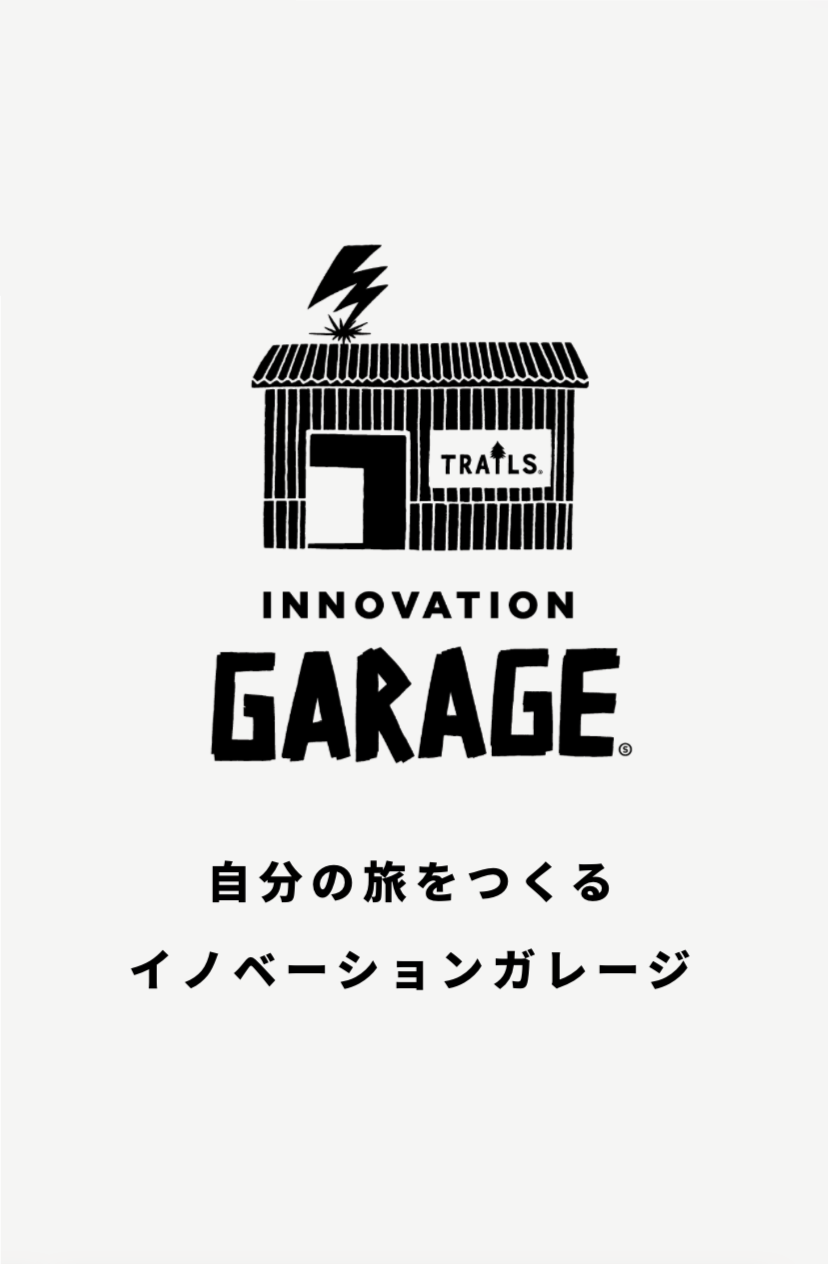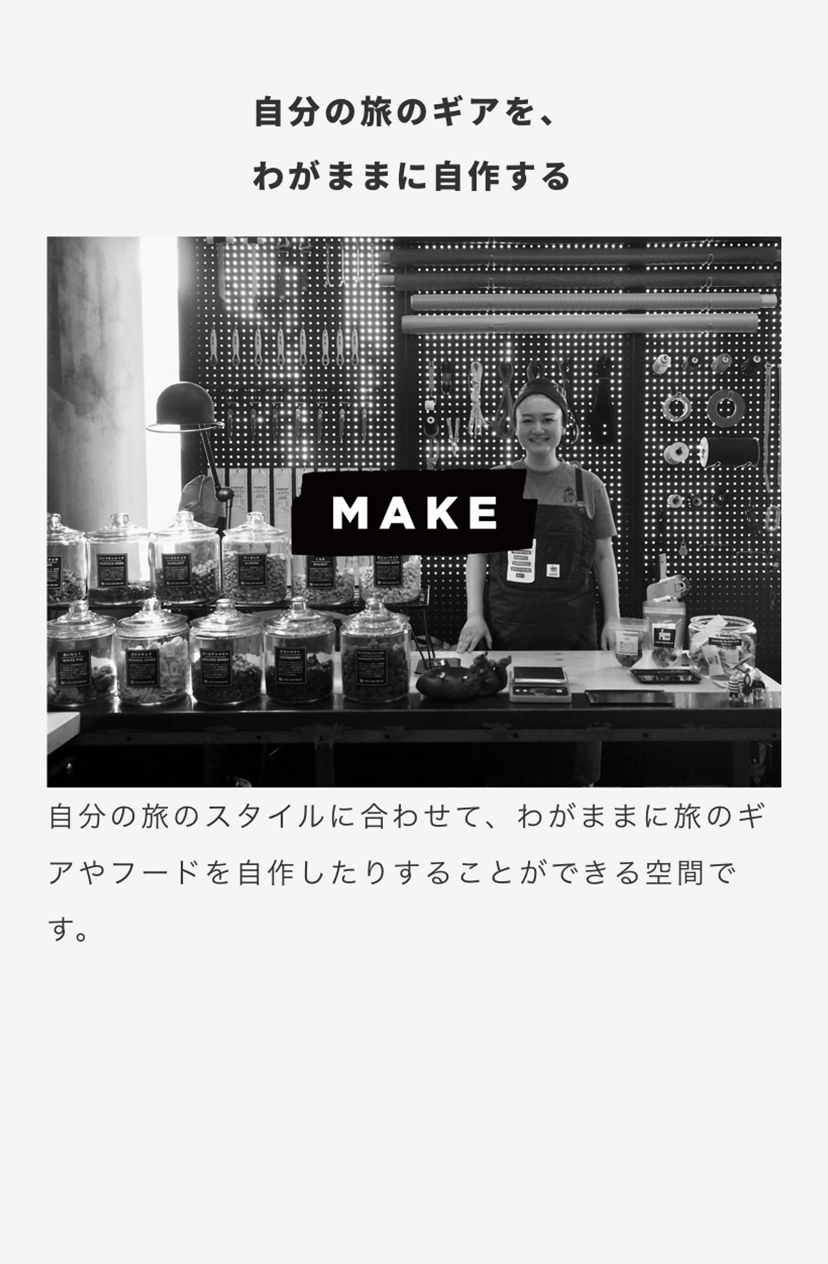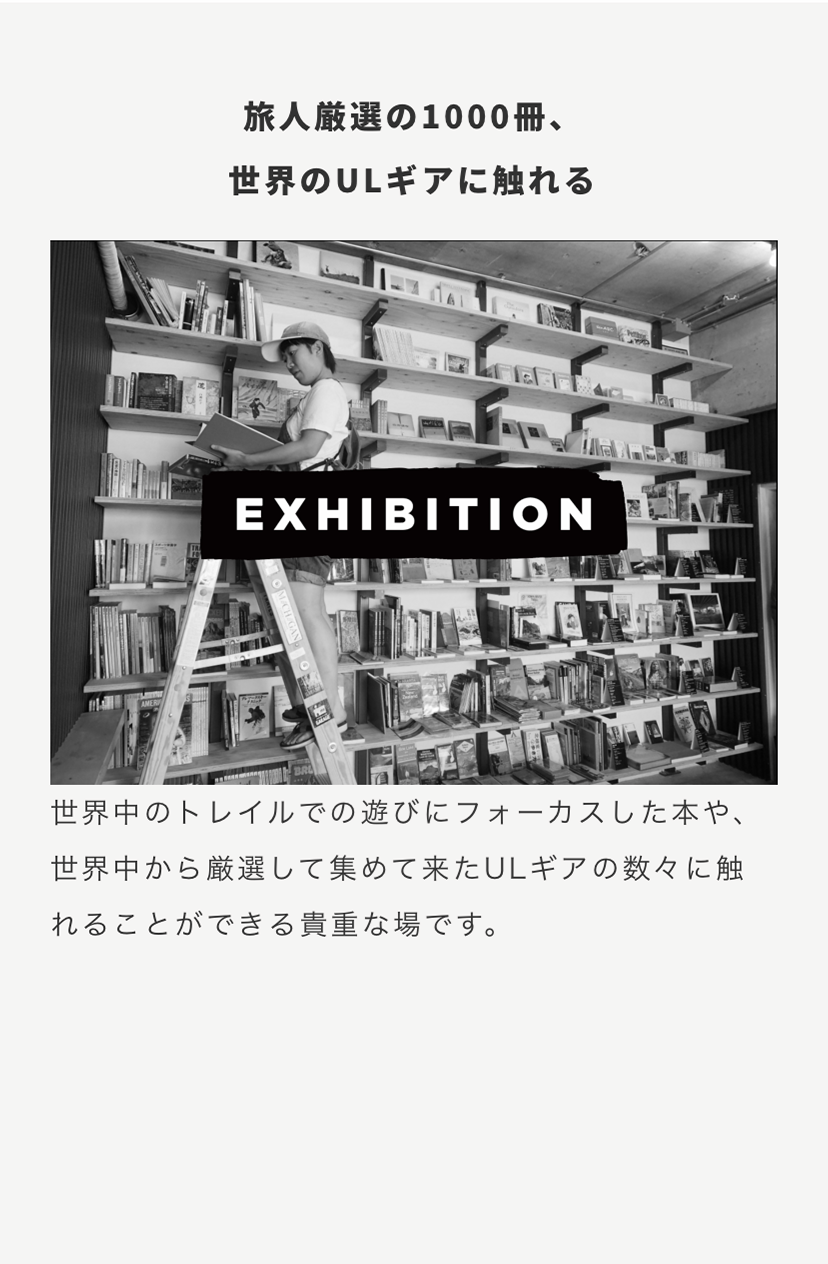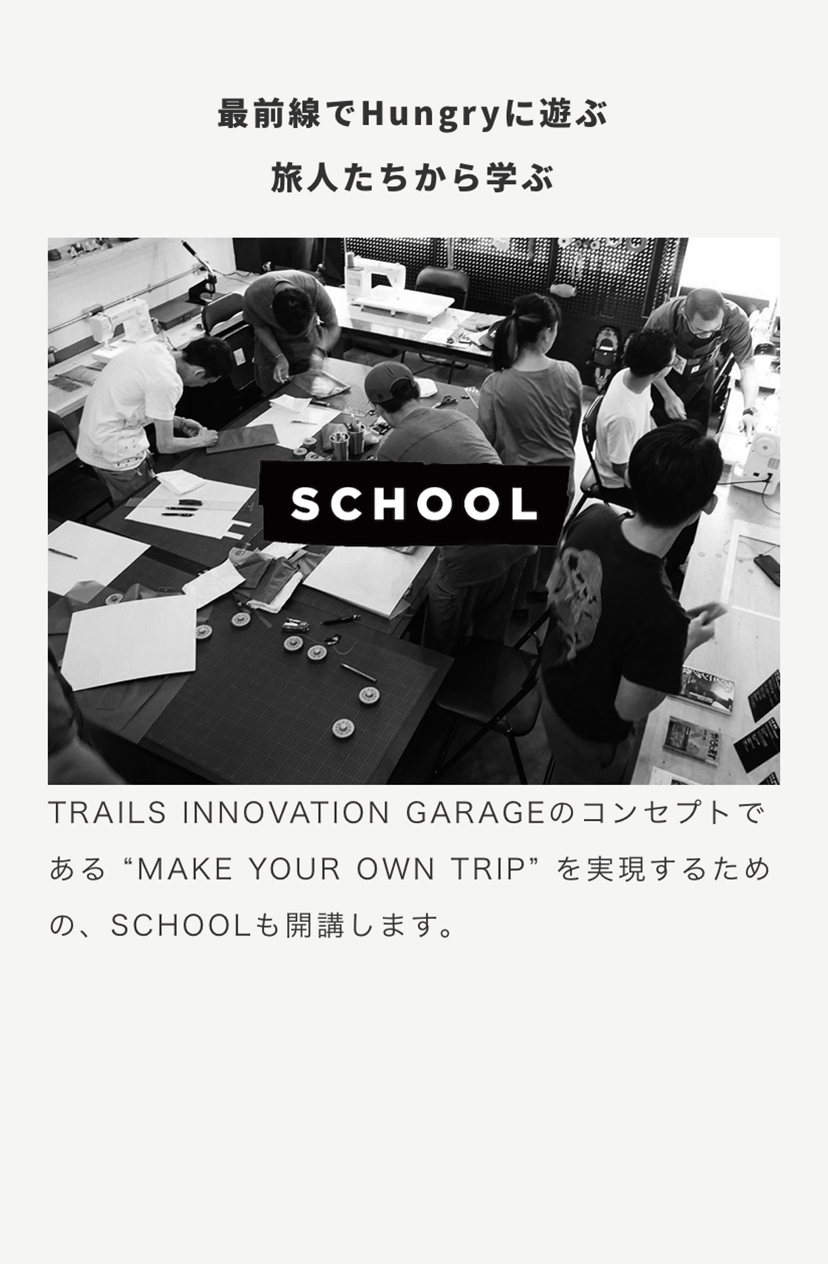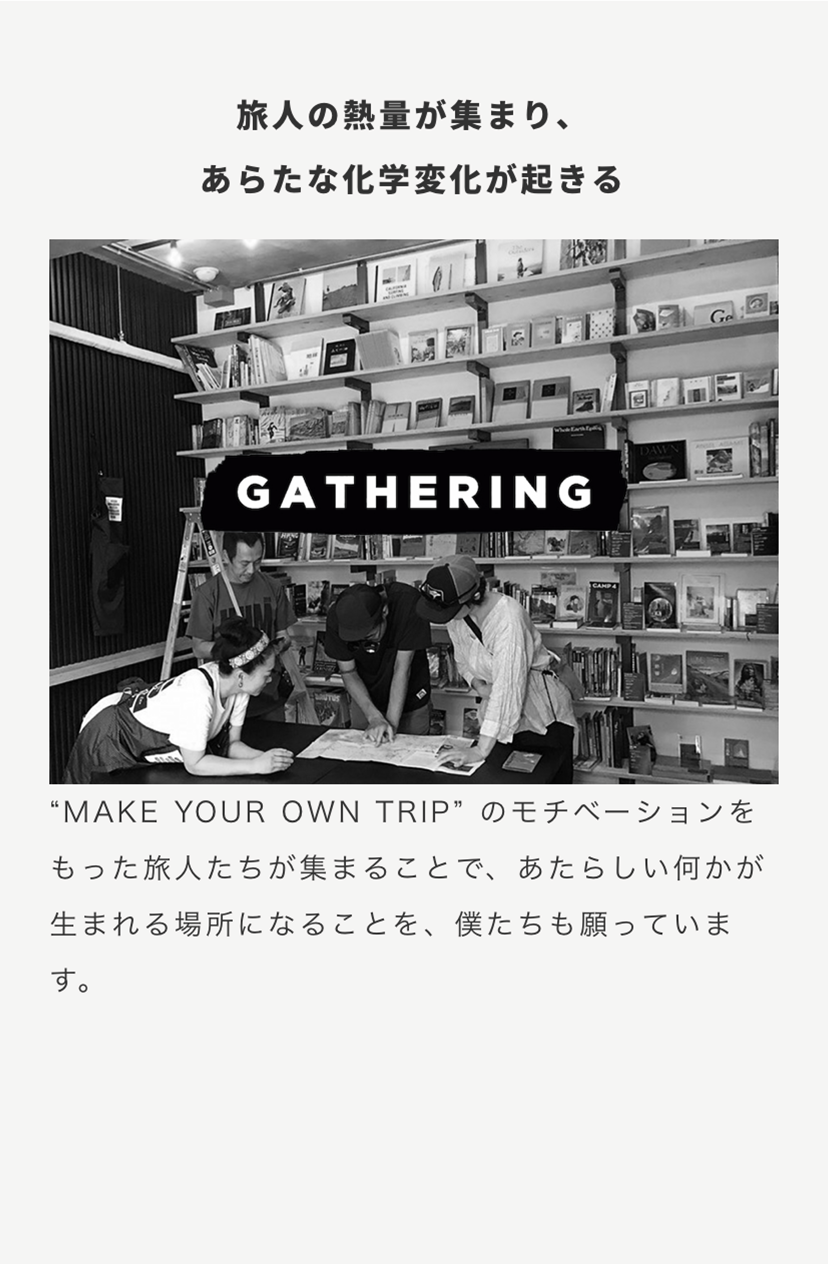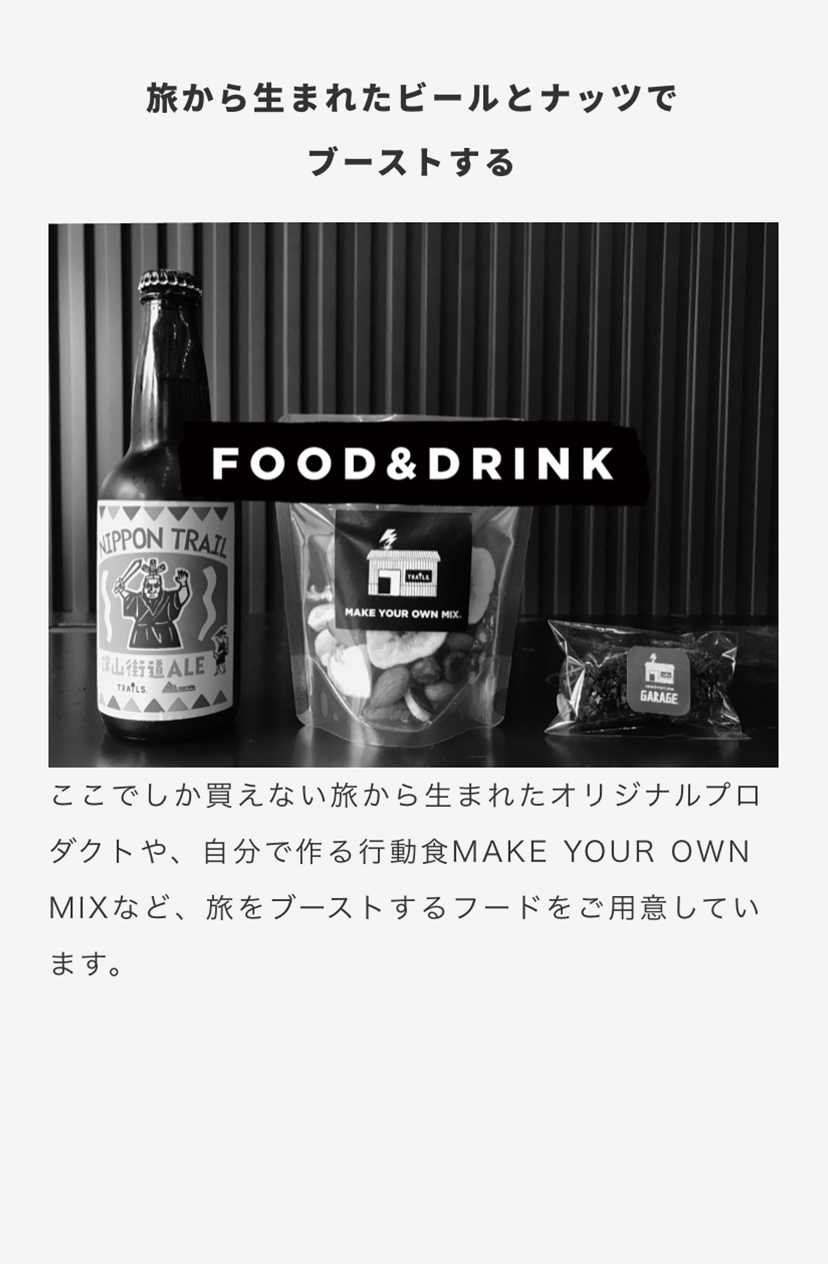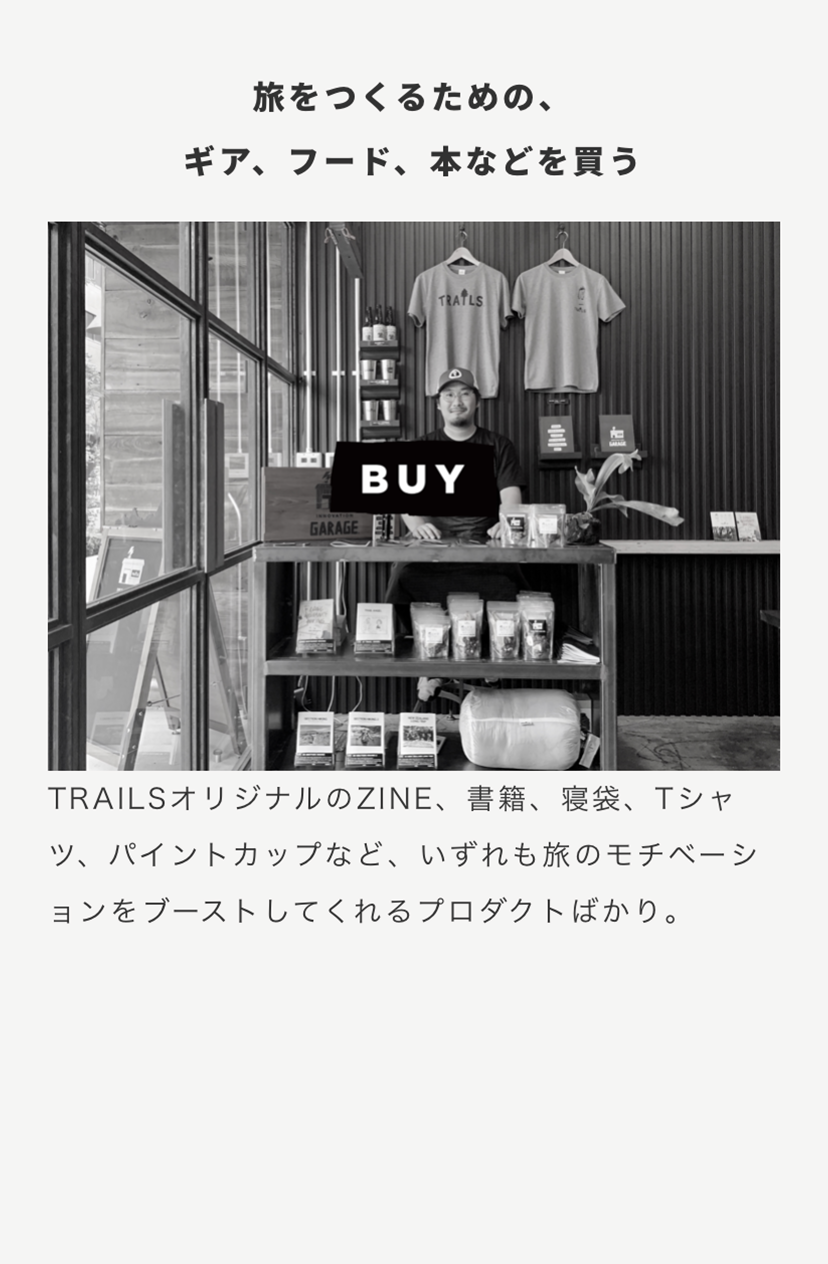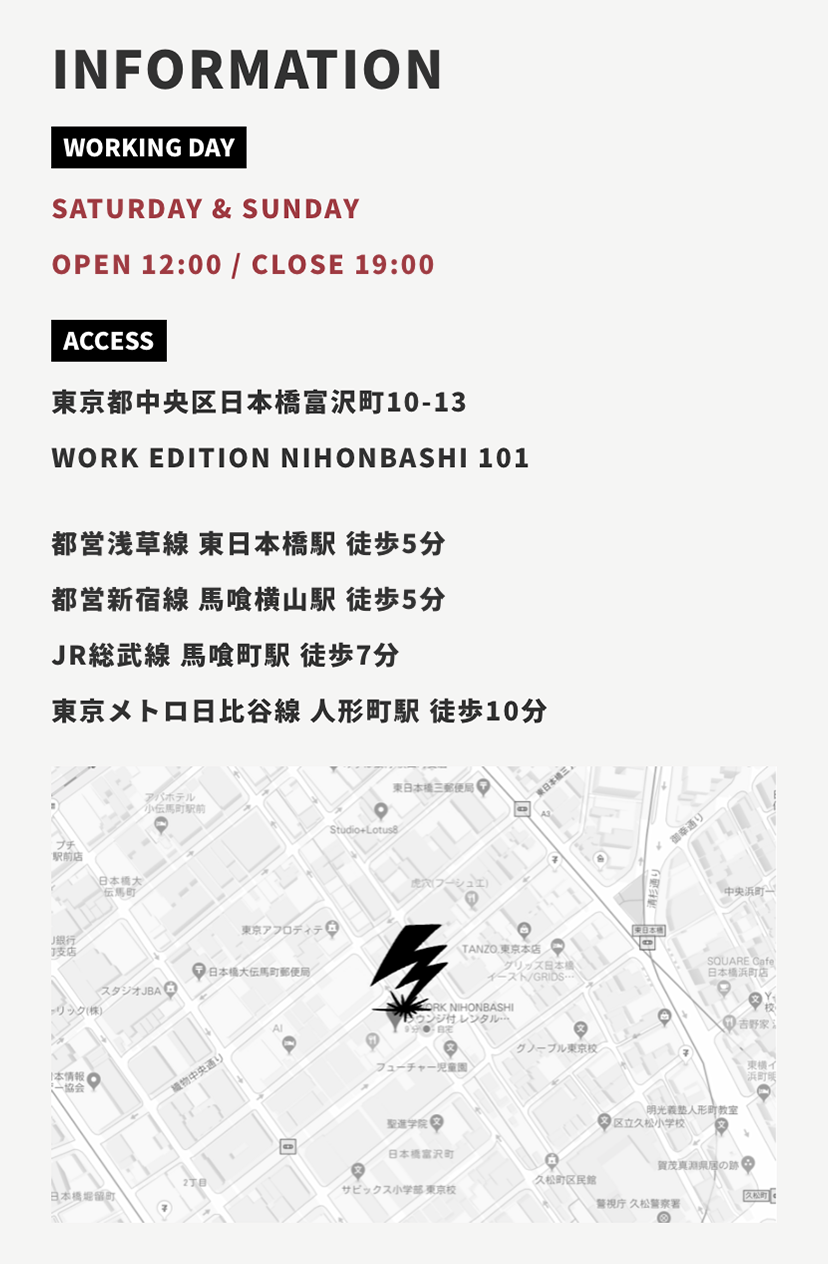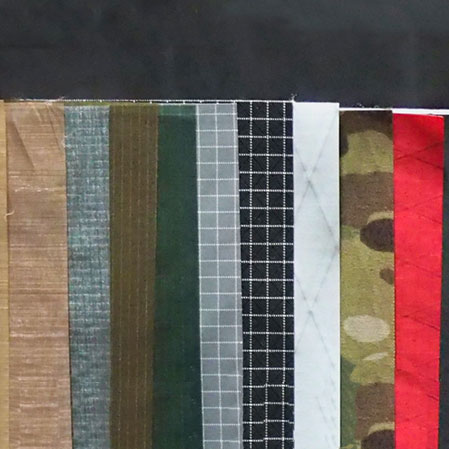パックラフト・アディクト | #21 ロシアのパックラフトの旅 <後編>川と湖をつないで白海へ
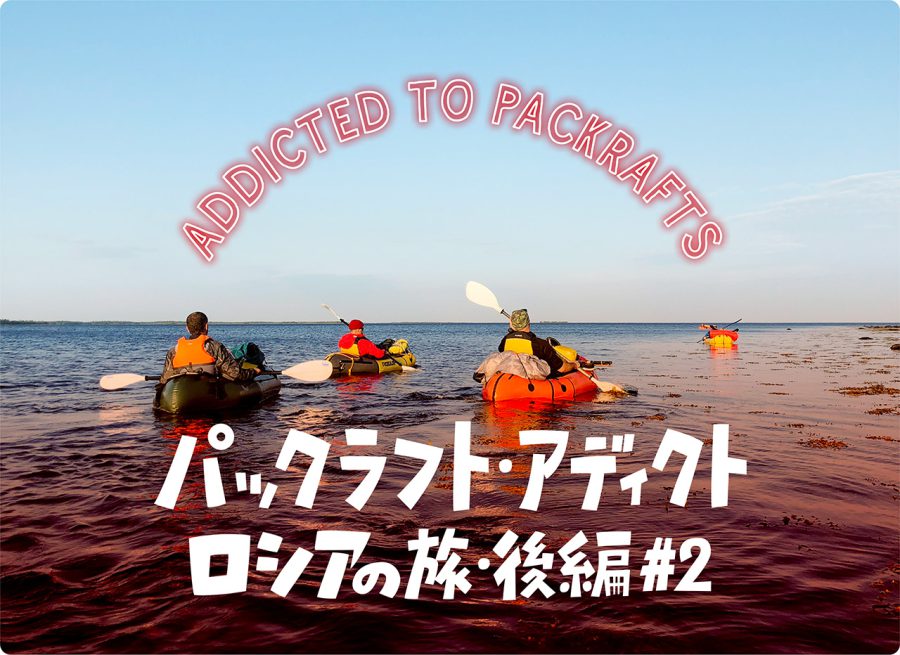
Packrafing In Karelia (Russia) Part 3 – Big Rapids, the White Sea and some Salty Tea
Day 8
We arrived at the White Sea at the very last moment – it was almost the peek of low tide, the water receded and we already had some problems getting to the big water. The water itself was very transparent and we could see some small shells and seaweeds there.
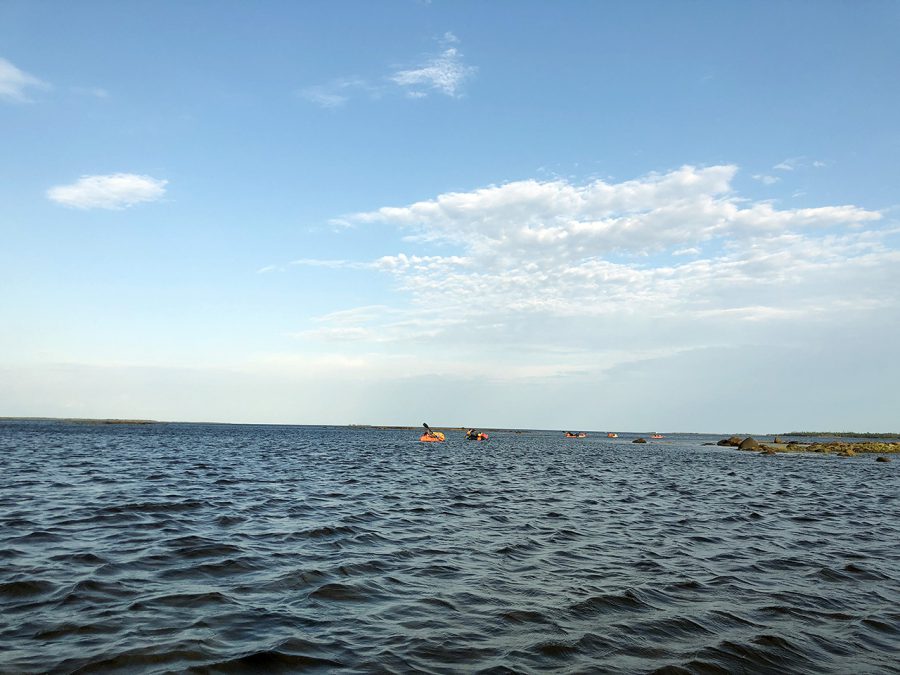
At one point I spotted a sea-star on a water plant and took it out from the water. It was the first time for me to see such a creature from a close up. I found it really fascinating especially as it still clutched to a small mollusk that it was eating.
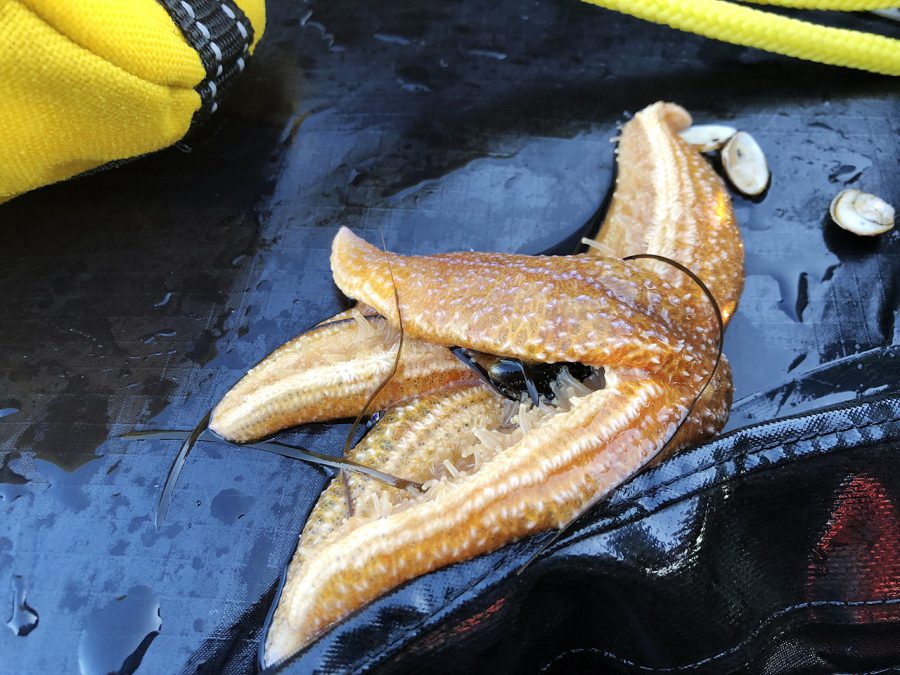
Once on the sea, everyone felt a bit more relaxed. Il assumed his favorite semi-reclined position in his packraft. I followed his suit.
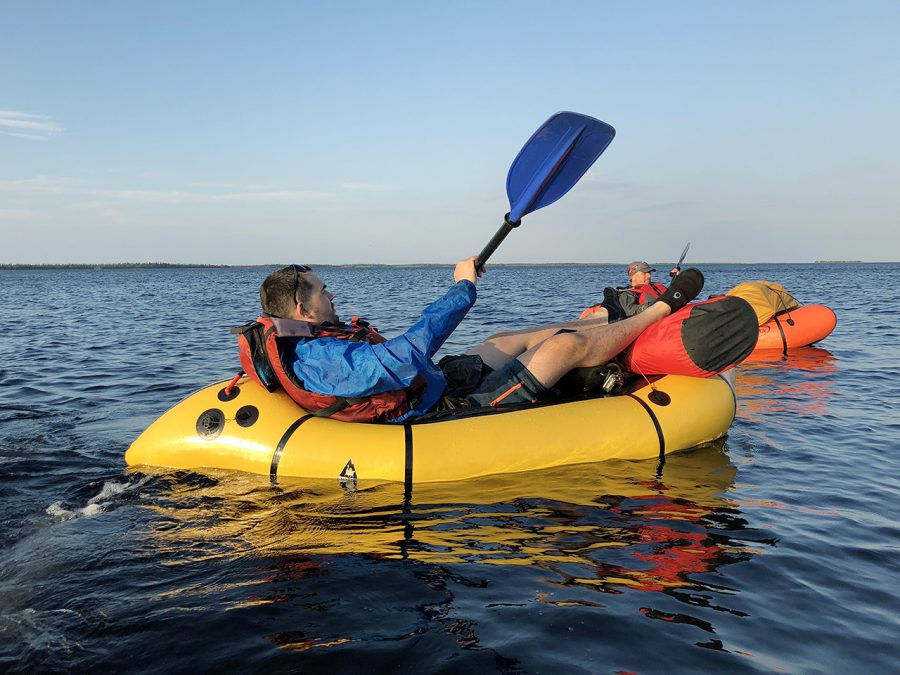
When we stopped at the place that we knew had a good camp site, we were met by several bare-chested guys who were a bit drunk and too friendly. They were overly eager to introduce themselves and tell us how they were brought there by a local fishing boat captain in the middle of a night, that there was no fish this year and that there were planning to go home soon. They also started to ask us about our packrafts and how much they cost.
“I don’t trust such people,” murmured Sashuk. “You can expect anything from them. I wouldn’t like to have such neighbors now. We better find another place to say.”
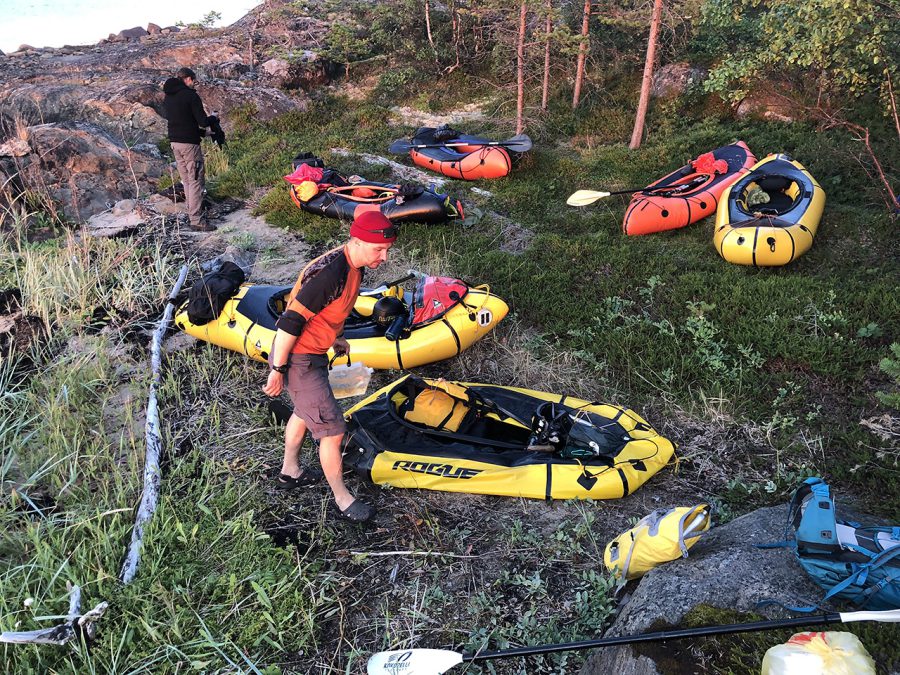
And so we did. We found a nice and very dry place on top of a huge granite rock. It had limited space for pitching tents, which is why we had to spread out a bit more. It was also difficult to move all our gear up but we didn’t feel like leaving anything unattended. On the other hand, the views were great and there was a small kitchen area with a table and a fire ring. By the time we finished unpacking, it was getting already dark. “Would you mind if we sleep without the outer tent?” I asked Il. He didn’t. And that is exactly what we did that warm night.
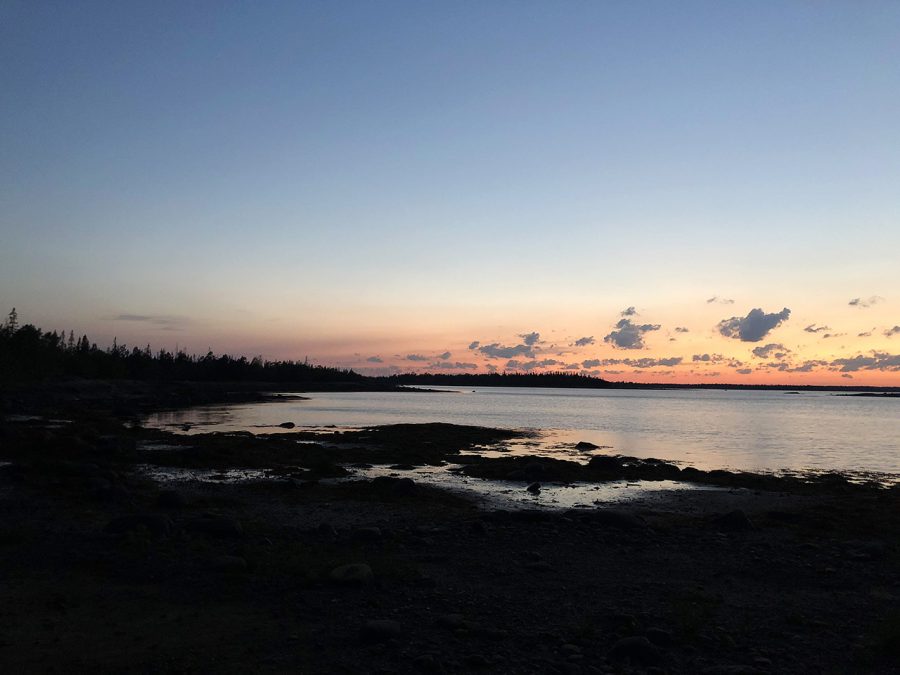
Day 9
It was our rest day – the third and the last one this trip. And rather early on we realized that we would have problems with not having enough drinking water. That is why while the rest went exploring, fishing or just relaxing, Dobrusha, Ilmar and I decided to go and search for that well/spring we had read about. Supposedly, it was on a island, which was just behind the corner from where we were. It was high tide and the water had risen over 5 meters, making the rock we were staying on look much smaller.
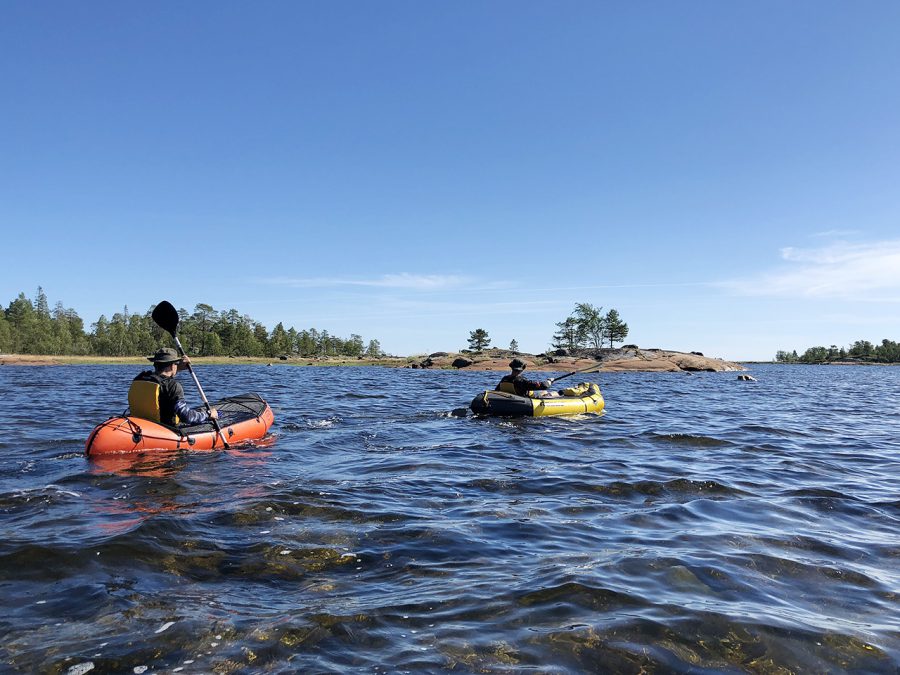
We jumped into our boats, paddled a short distance around a cape and got to the Kalostrov island. Already from a distance we saw that it was occupied by, as it turned out, a large family group from Moscow consisting of three generations. They told us that they had been island hopping for almost a month already, which was their regular way of spending summer holidays.
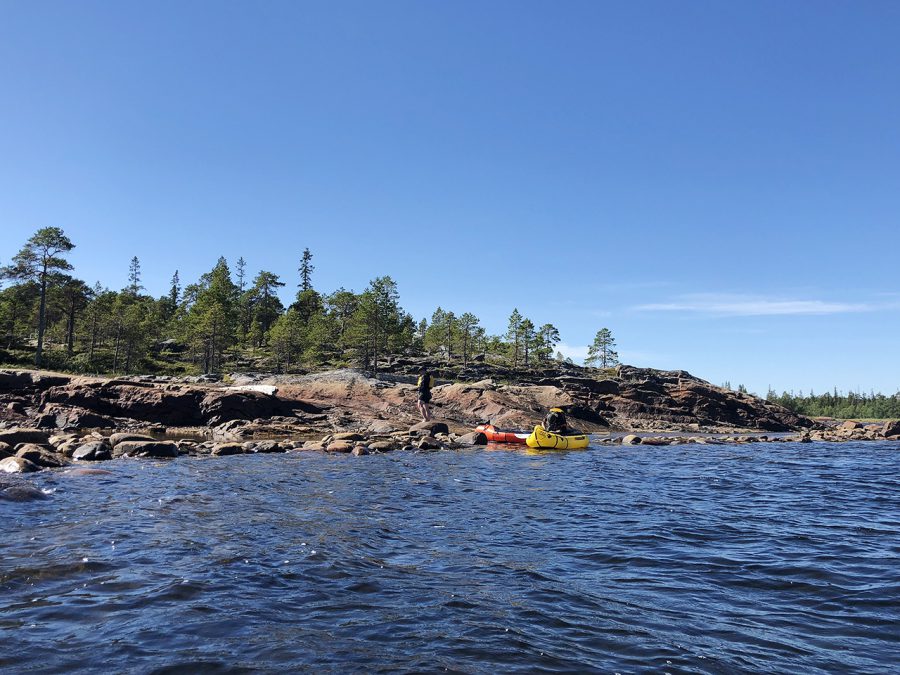
“We hear that there is some kind of well here,” we asked them. “Do you know anything about it?” Luckily they did. “But it is not really a well – just a whole in the ground that collects swamp water. But right now it’s almost dry.” “So, where do you get fresh water than?” I asked. “We collect rain water,” they pointed at the tarp over their kitchen. “ And if there is no rain, we use puddles. There is a big one on the other side of the island, near a trollebus.” “A what?” “You will see,” they laughed and pointed us in the direction of the ‘well,’ which turned out to be nothing more than a small hole full of muddy water.
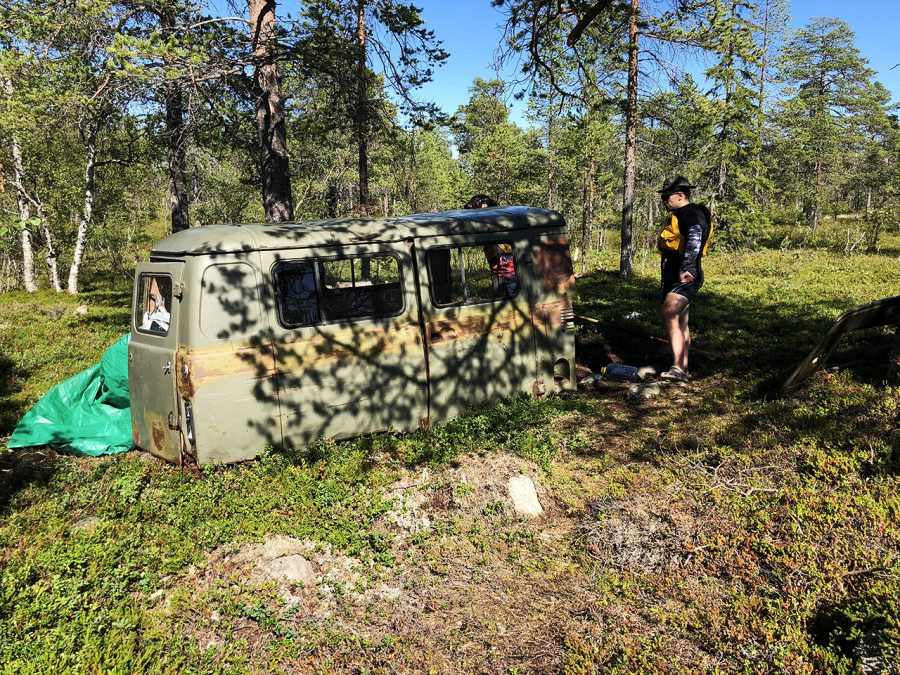
“We should try the puddle then,” we agreed and took our packrafts around the island to what we thought they called a ‘trollyebus’. Upon closer examination it turned out to be a part of a minivan that was turned into a temporary shelter, with a make-shift bed.

“How did it get here?” we wondered. A small laminated map that we found inside might have offered an answer to that question – in winter time the waters around this island could be frozen and it it would be possible to drive here on the ice. Next to the ‘trolleybus’ there was a stack of tree trunks cut into smaller sections. One of such pieces had a hole inside, which made it perfect for making fire to use a frying pan to fry on it. It was a perfect trophy to bring back with us.
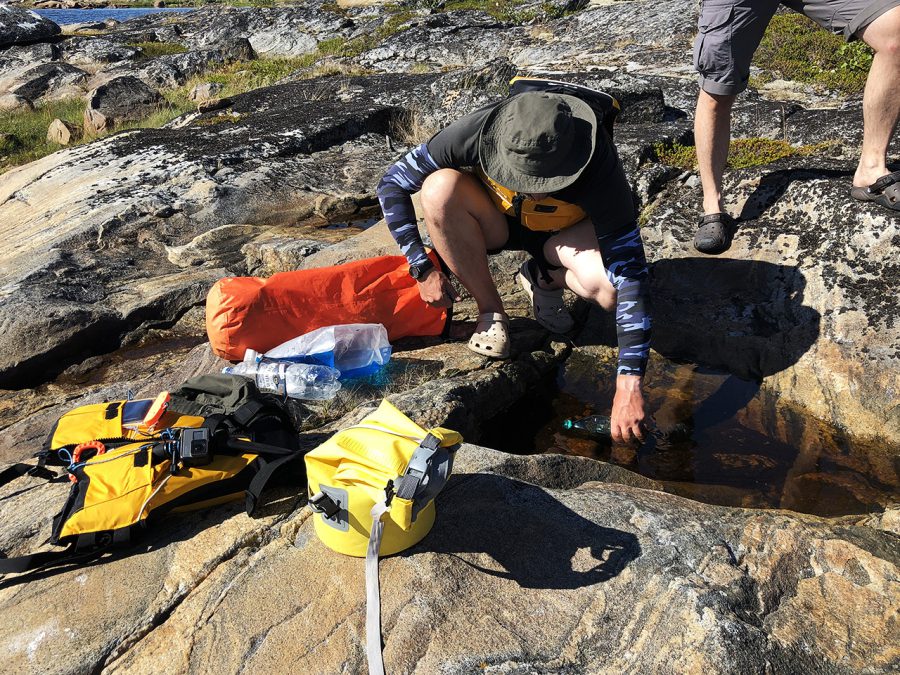
Not far from the there, we also found several puddles, from where were able to refill our bottles. As we didn’t have a water filter with us (before the trip we had a discussion and decided it was not necessary), we had to make an improvised one once we reached the cam. It consisted of two plastic water bottles with cut off bottoms, which we stuffed moss, crushed coals from the fire and a piece of clothes. We also boiled all the water before we tried to drink it (it didn’t taste that great, but it was better than nothing).
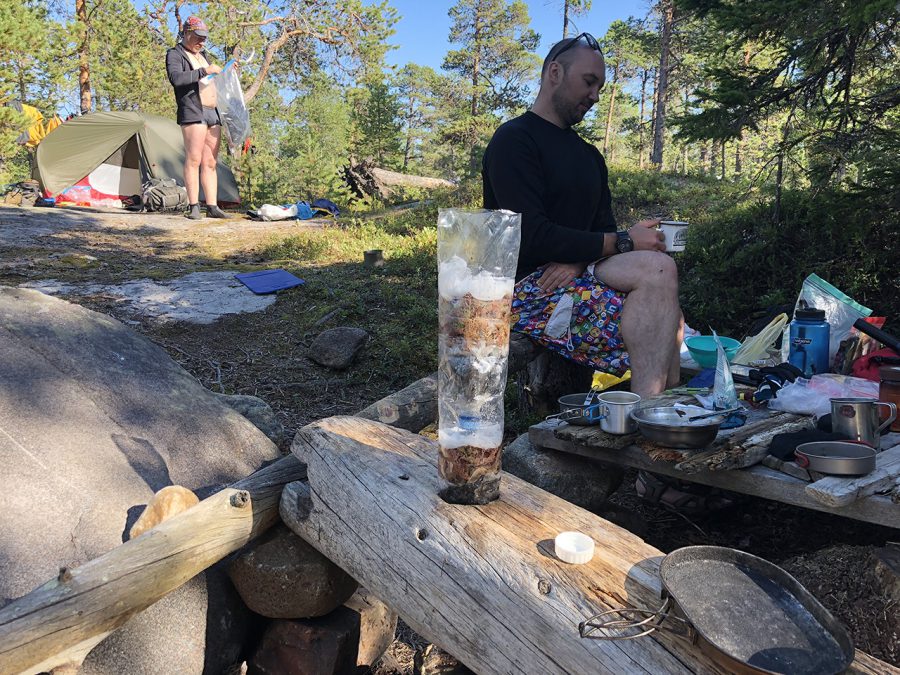
That day we also made a decision that we didn’t want to go further than the Pongoma village – the nearest settlement on the White Sea. This helped us to shorten the total distance by around six kilometers, which can be a lot on the sea if you have to paddle against the wind. Having made this decision, we contacted a woman, who lived in Moscow (judging by her phone number) but acted as a village representative. She helped us to arrange a transfer to Kuzema, from where we had to take our train. And when asked if she new anyone with a sauna, she promised to find one out and a few minutes after the end of the conversation, she texted us a number. She also told us that there was a shop, but we had to be careful as it was closing early on the weekends.

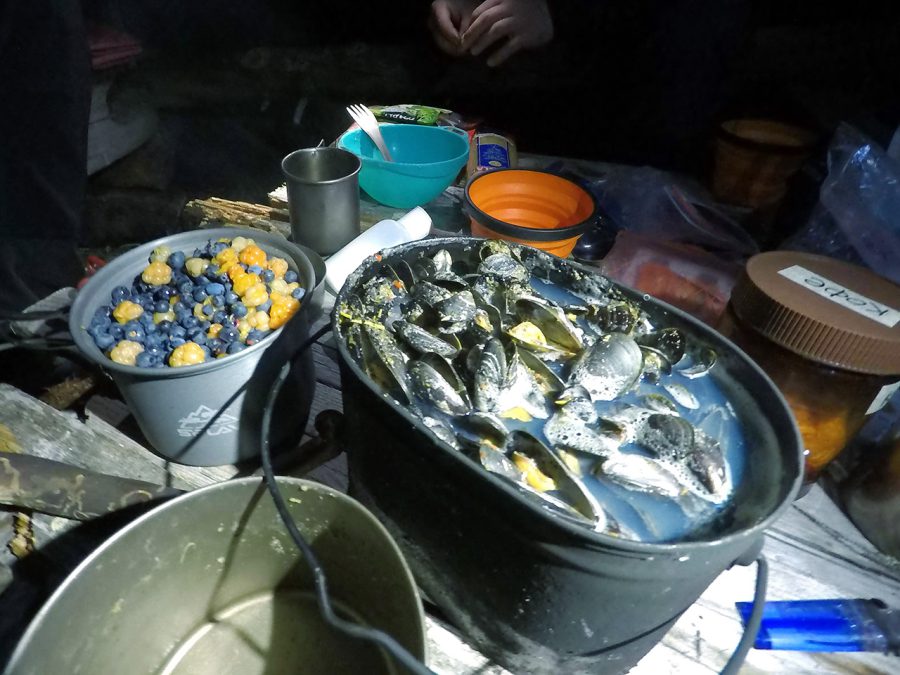
To celebrate ‘almost the end’ of our trip, we also had a feast that evening. Besides the planned soup, we had pancakes made on the hollowed our trunk we brought from the other island and boiled mussels that we collected at the low tide next to the camp.
Day 10
The weather changed overnight – it became cloudy and by the time we got into our rafts, it started to rain. The accumulated tiredness of the whole trip and the fact that we were just some ten kilometers to our final destination made us impatient. And impatience is not always the best advisor. I, for one, clearly felt it on my skin as well.
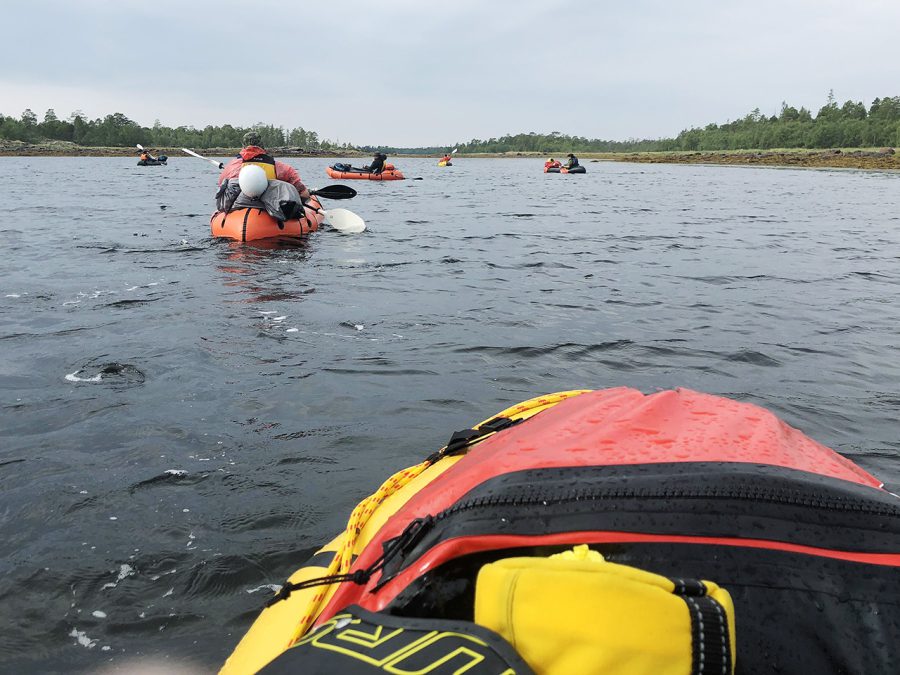
They say that most adventures start with a phase – “don’t worry, I know a shortcut”. And that is exactly what I said when we got to Kalostrov island, which at the low tide as it was then, was connected to the mainland by a narrow strip of land. “Let’s walk over it – it will be shorter than going around the island,” suggested I to those who were in the front with me. And we started to carry our packrafts through what turned out to be mud. “Just a few more meters and on the other side we can start paddling already,” encouraged I others. But we couldn’t – it was just not enough water and under it, there was thick, sticky mud that made it almost impossible to walk there.
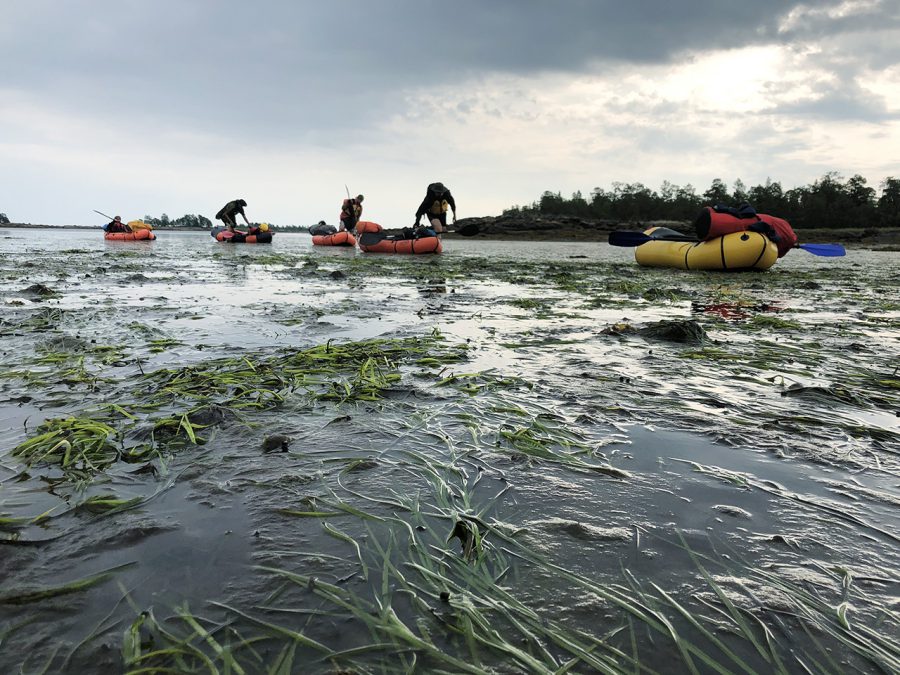
But it was too late to turn back and we had to push forward with every step struggling to pull our feet out.
The wind had also changed and now instead of cruising with the wind, we had to paddle from the protection of one island to that of another. But after about four hours on the water, we eventually reached the Island Shangostrov, at the estuary of the Pongoma river and the village.
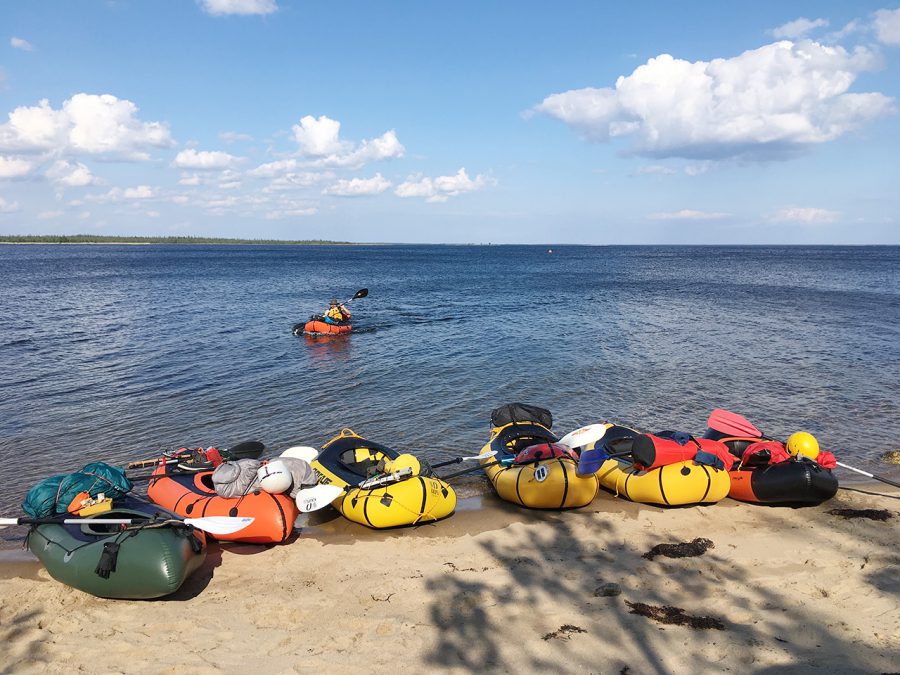
As all the arrangements were made for the next day, we decided to stay on that island for one last night. But first, we needed to get fresh water and some food – we ate a bit more that’s it was planned the day before and we ran out of the puddle water.
So, while the rest of us were busy setting up the camp, Lev and Sashuk decided to paddle to the village. In about an hour they returned with some bad news. The shop we were told about was permanently closed. As for fresh water, they could not find a well (which the woman from Moscow mentioned to us on the phone), but they asked an elderly couple, who seemed to be drunk, about the water and were pointed towards the river. “You need to do it at the high tide, though,” the couple told them. “Otherwise the water could be a bit salty.”
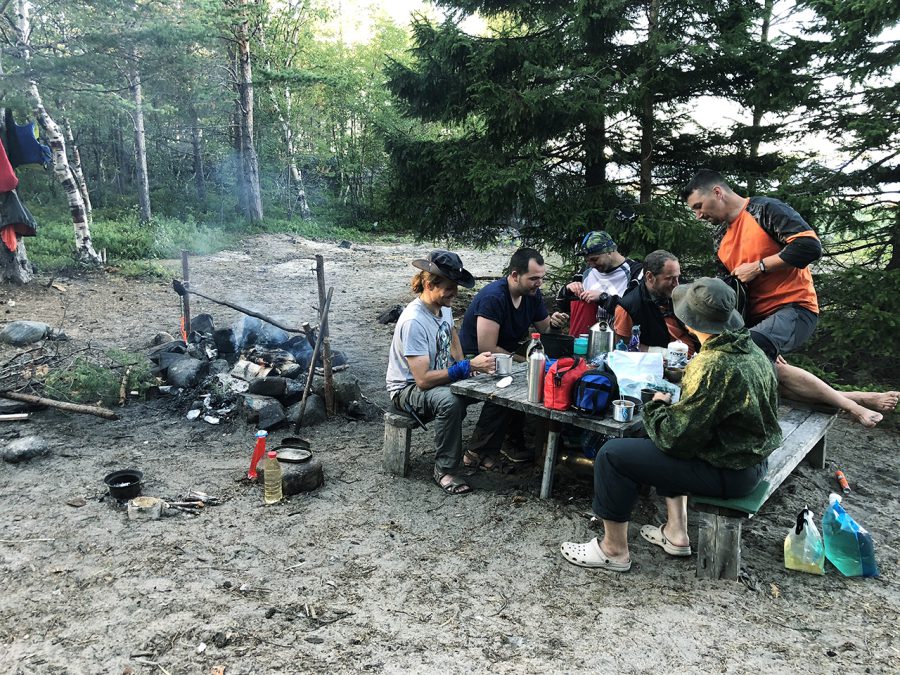
We were not completely satisfied with this news. But beggars can’t be choosers, and as we didn’t have enough water, Dobrusha volunteered to fetch it for us by paddling up the river stream and filling up the bottles there. But either he didn’t go far up enough, or it was just a bad time to collect water, it turned out that what he brought was still ‘a bit salty.’
We discovered this when we used the last remaining teabag to make some nice and warm tea. “It is disgusting,” said Vadim who tried it first. “I am not drinking it.” The rest of us had similar experience.
So, what were we to do with that undrinkable water? “Let’s cook some soup,” decided we. “We would need to salt it anyways. Why not use salty water instead?” And indeed, the soup turned out to be very tasty.
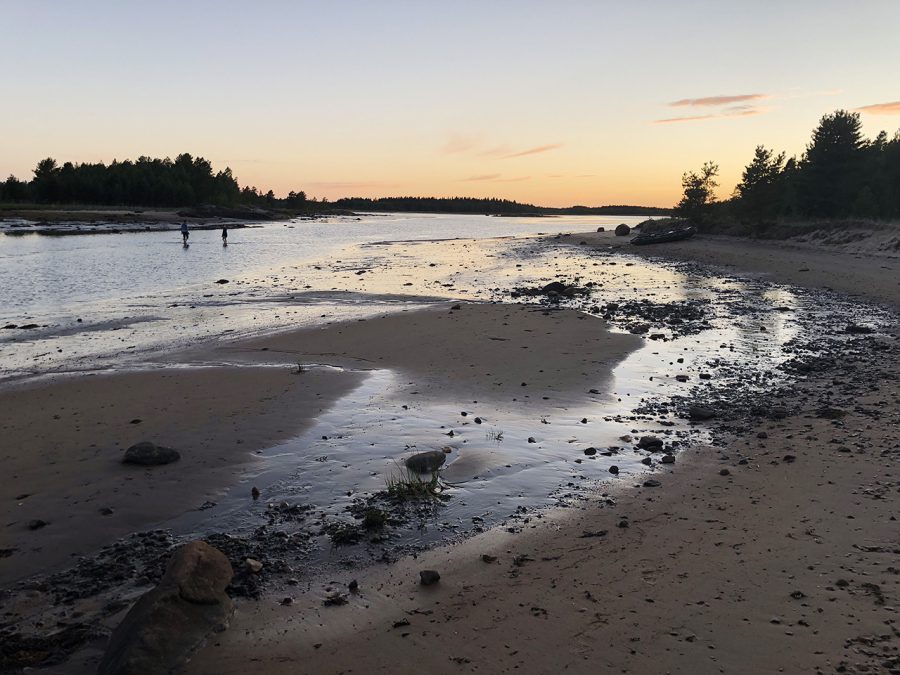
Closer to the evening, a large group from Byelorus arrived arrived on several catamarans. Their leader asked if it would be ok to camp next to us and we said yes. Actually, we were in no position to refuse them, but later we wished that we could have done it – the whole evening and most of the night our new neighbors were parting loudly, while all we wanted to do was to sleep.
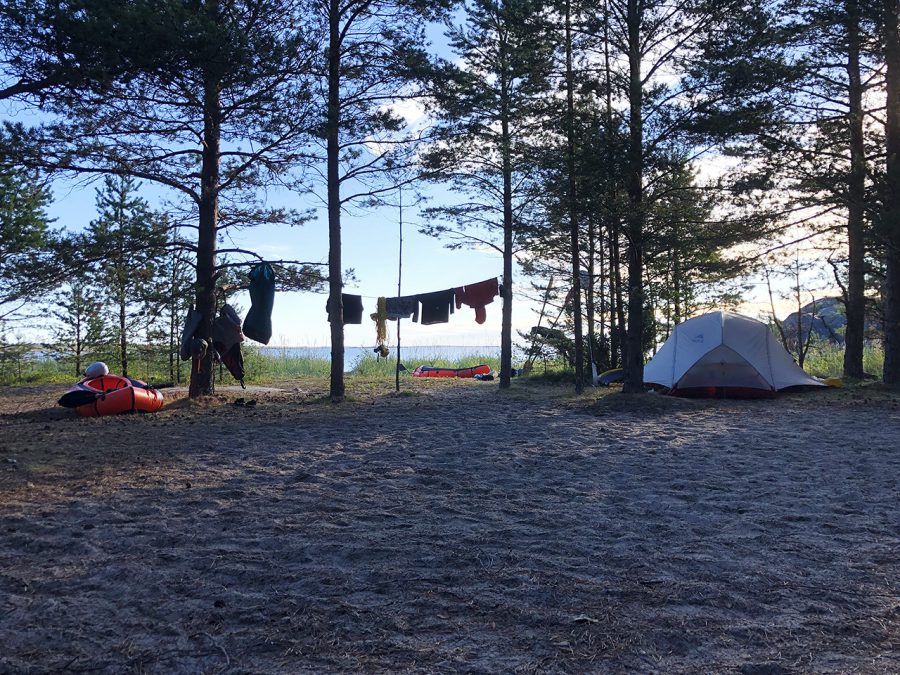
Day 11
The next morning, thirsty and tired from the lack of sleep, we quickly packed our packrafts and started on our last 500-meters-long journey. Whereas the village itself was more inland, we disembarked at a big warehouse that, as I later learned, was used in the past to store caught fish. It used to be a booming industry in the past, but now this place was semi-abandoned.
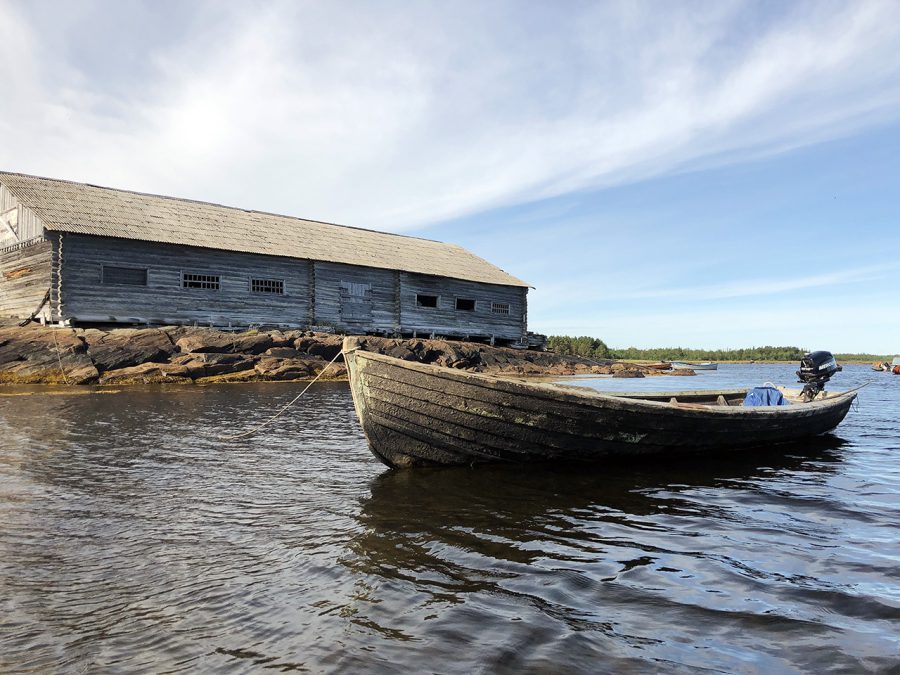
The village itself was a combination of some old and dilapidated houses that stood at stark contrast to some newly renovated ones, which, judging by the registration plates on the cars parked next to them, belonged to outsiders, most of whom were from Sankt Petersburg. We ourselves were searching for ‘a brick house with a satellite dish.’ At least that’s how its owner described it on the phone. “Just walk from the shore, and you will see it,” she said. And indeed we easily found it as there were not a lot of houses fitting that description. Near it, there was a relatively large wood-burning sauna, which had smoke coming from the chimney. “This must be fore us,” we thought and approached a small guy in his fifties, who walked out of it. His name turned out to be Vasiliy and he didn’t have front teeth.
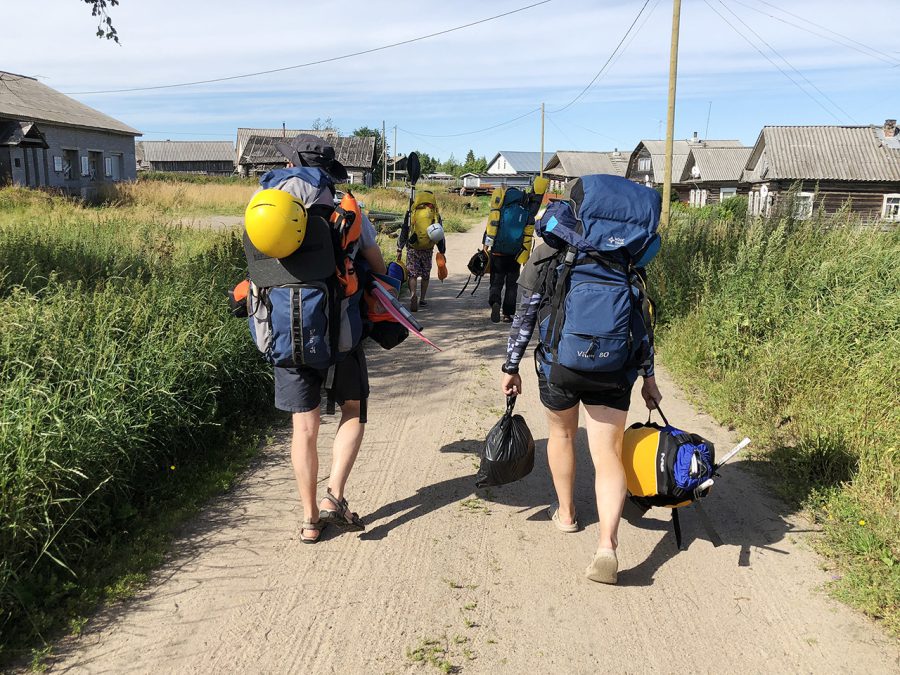
Vasiliy was waiting for us. “Would you be able to drive us to a shop in Kuzema?” “No problem. It will be two hundred rubles each way,” he said with a grin. (200 rubles is just under 3 Euro.)
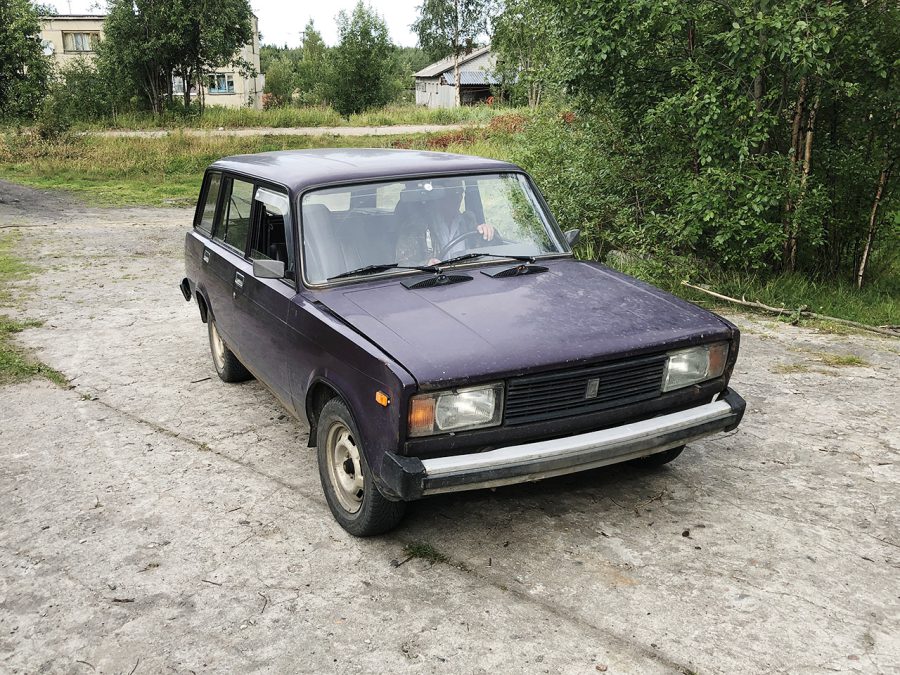
As not all of us could go, he invited Lev and I to get into his car – an old Lada 7, which didn’t have number plates.
When I instinctively tried to buckle up, he laughed and asked me not to worry. “I will not be able to drive here faster than 40 km/h.”
On the way to the town, he told us that that road used to be a railway road in the past, but it was disassembled in the 70s.
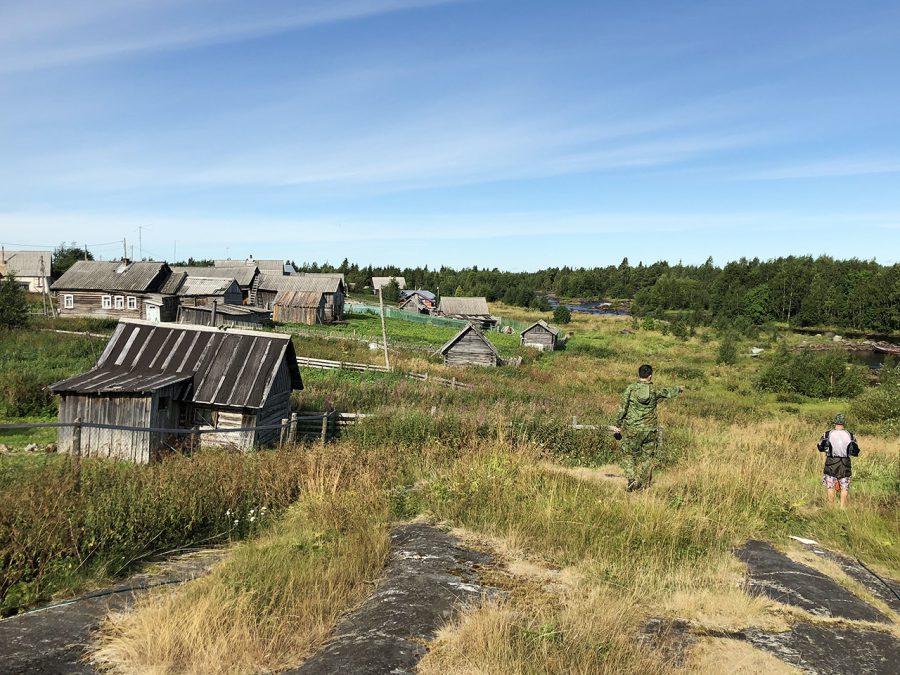
When we asked about the village, he said besides outsiders who would come there only in summer, there were 80 people living there permanently and only two of them (he and another person) had a job. “And at the same time they manage to find money for vodka. I really don’t understand how.”
He himself was working for the railway, but it was only seasonal. In the summer he would usually go fishing, hunting, picking berries. His wife did not have a job. “It’s almost impossible for a woman here to find one.” But they did earn something from tourists. “After the paddling season is over at the end of August, the hunting season starts.” “What kind of animals do you have here?” “We have moose, elk, and, in wintertime, reindeer. We also have grouse and geese.” “Are there also dangerous animals?” “Yes. We have bears and in wintertime wolves come over fallowing the reindeer. But mostly bears.”

But we should not be afraid – the bears were very careful with humans and never attach them. “If they did, they would have been hunted down.” He remembered something and laughed: “My neighbor went to check fishing nets recently, and met a bear that was attached by the fish as well. He tried to run the bear over with a boat, but the bear hit his boat and ran away.” And he laughed again. “Of course, you cannot kill a bear like that. It’s not a moose or an elk.” Lev and I looked at each other not quite clear of what he meant.
Vasiliy saw it and explained that usually if they met a moose swimming from one island to another, they would hook it by the antlers with an anchor and drag it until it drowned. “But you have to be careful to drag the moose away from the shallows because if it reaches the bottom, you and your boat are goners.”
Listening to Vasiliy was like listening to someone from a different world. Whereas the nature around them was abound, the hardships were plentiful as well. “You know that I need to drive over 80 kilometers to get petrol for my car,” he said to us.
Back to the sauna, we joined the rest who were enjoying the steam already. Dobrusha was the bath master and Sashuk used his skills of a chiropractor to re-aline our backs.
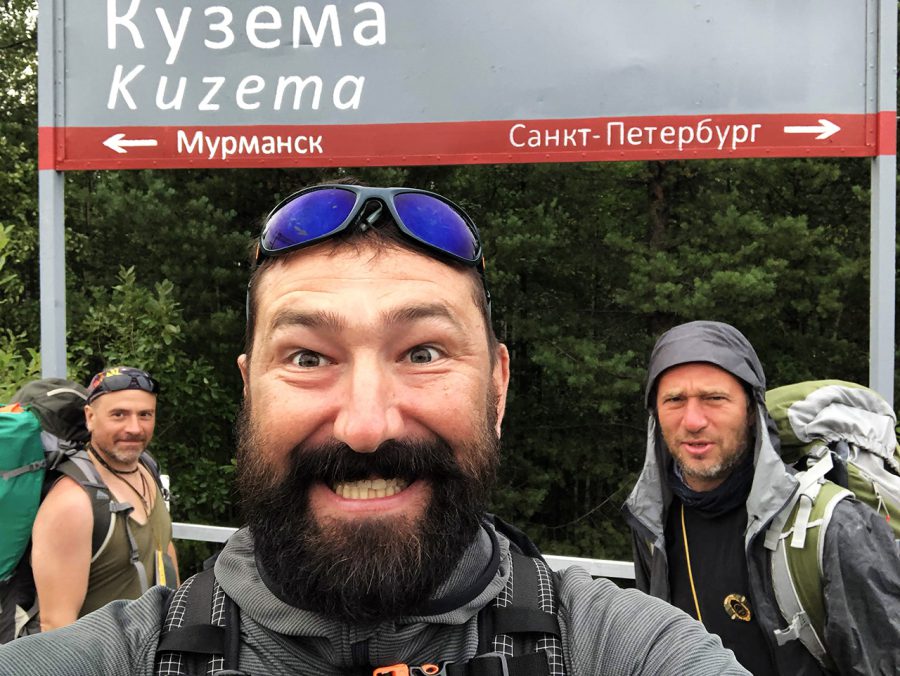
Clean and rested we had to say good buy to each other. While Lev, Vadim and I had to take a train later that day, while the rest were traveling back to Orel the next morning. We hugged each other and said goodbyes. It was a great trip and we thoroughly enjoyed it. With all its ups and downs.
“So, next year somewhere in Europe?” I asked.
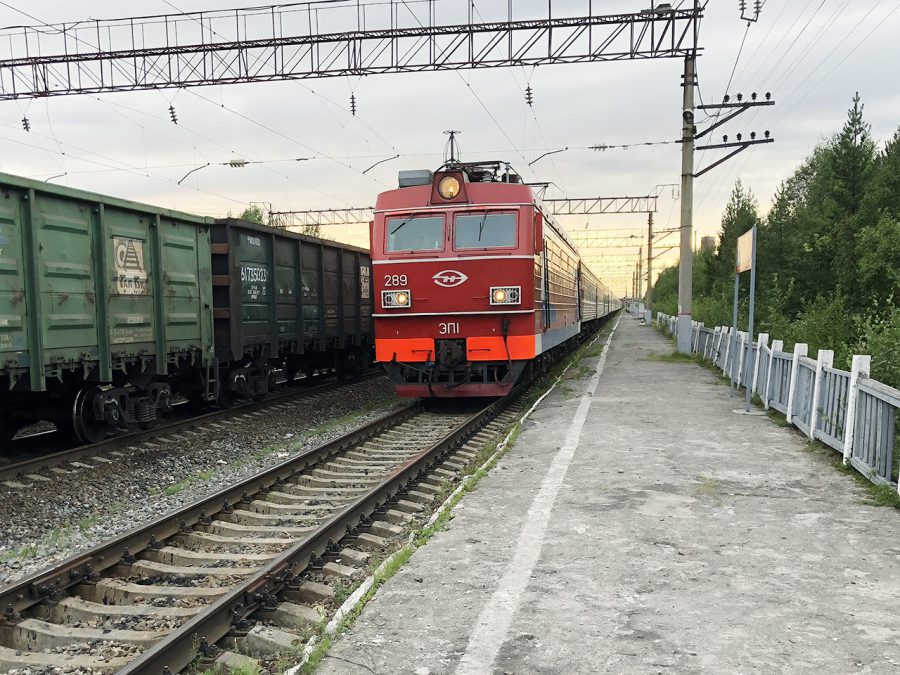
Related Articles
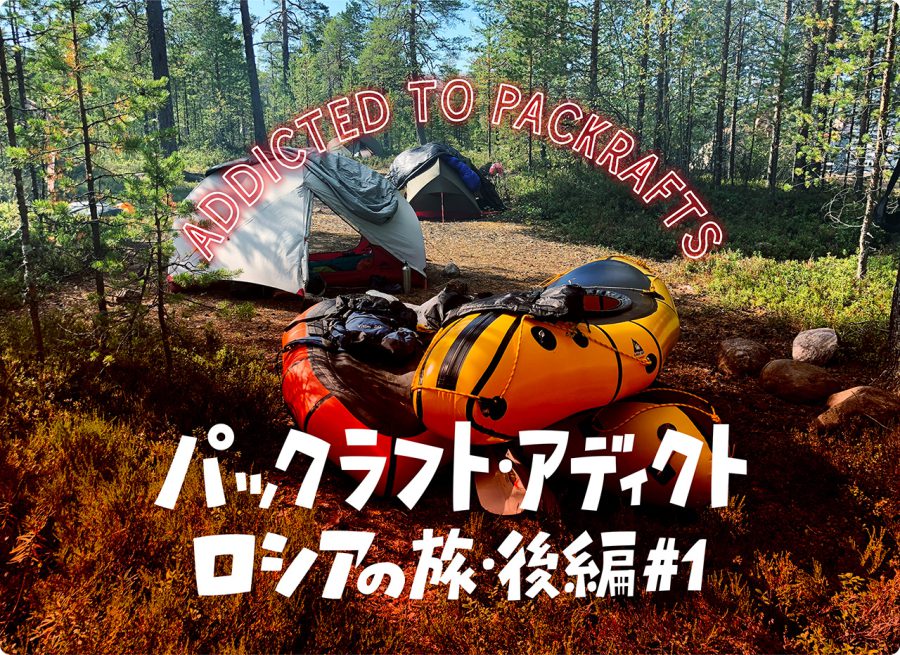
パックラフト・アディクト | #20 ロシアのパックラフトの旅 <後編>次々と現れる急流に挑む
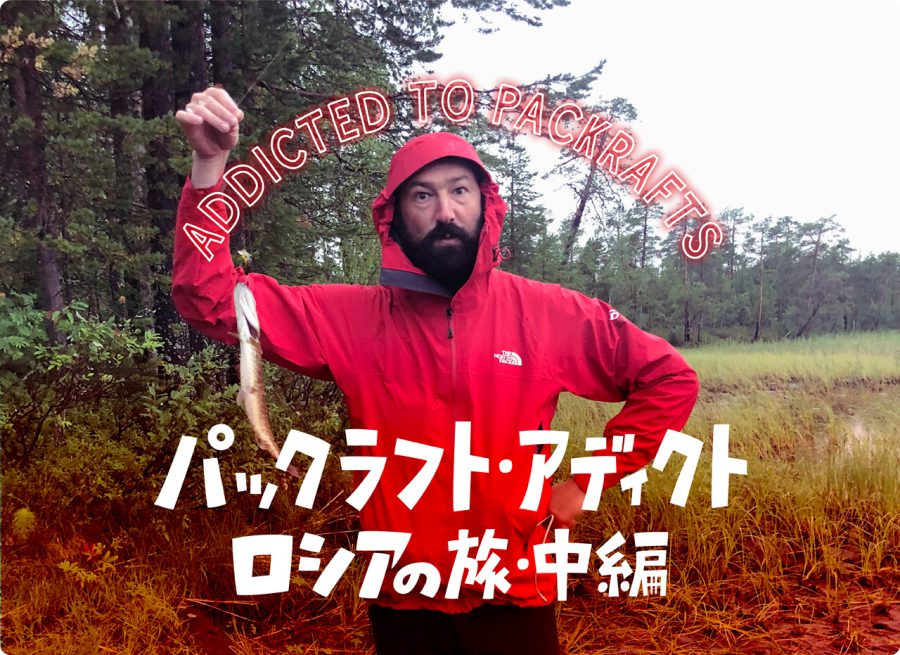
パックラフト・アディクト | #14 ロシアのパックラフトの旅 <中編>たび重なる困難と幸せなキャンプ生活
- « 前へ
- 2 / 2
- 次へ »
TAGS:

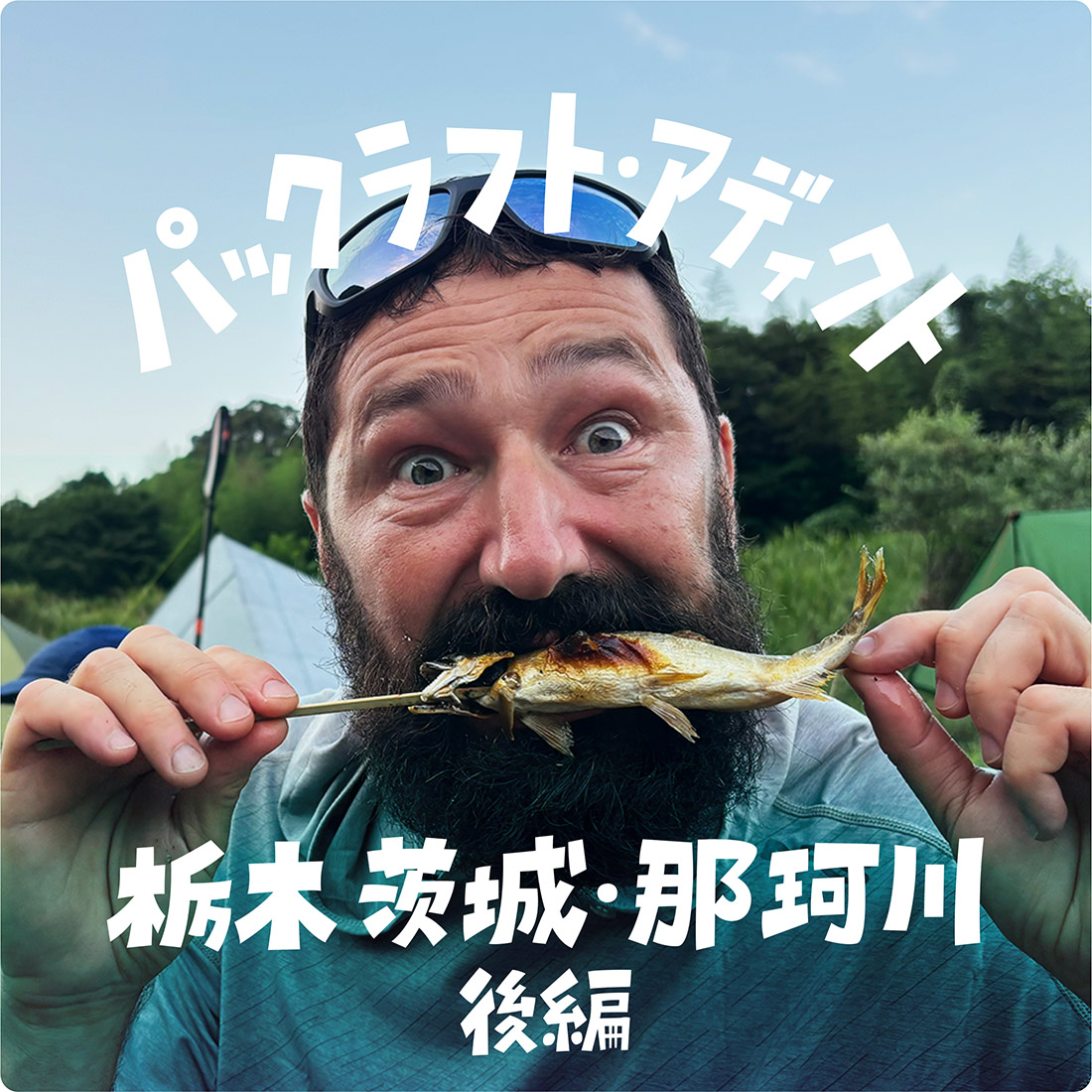
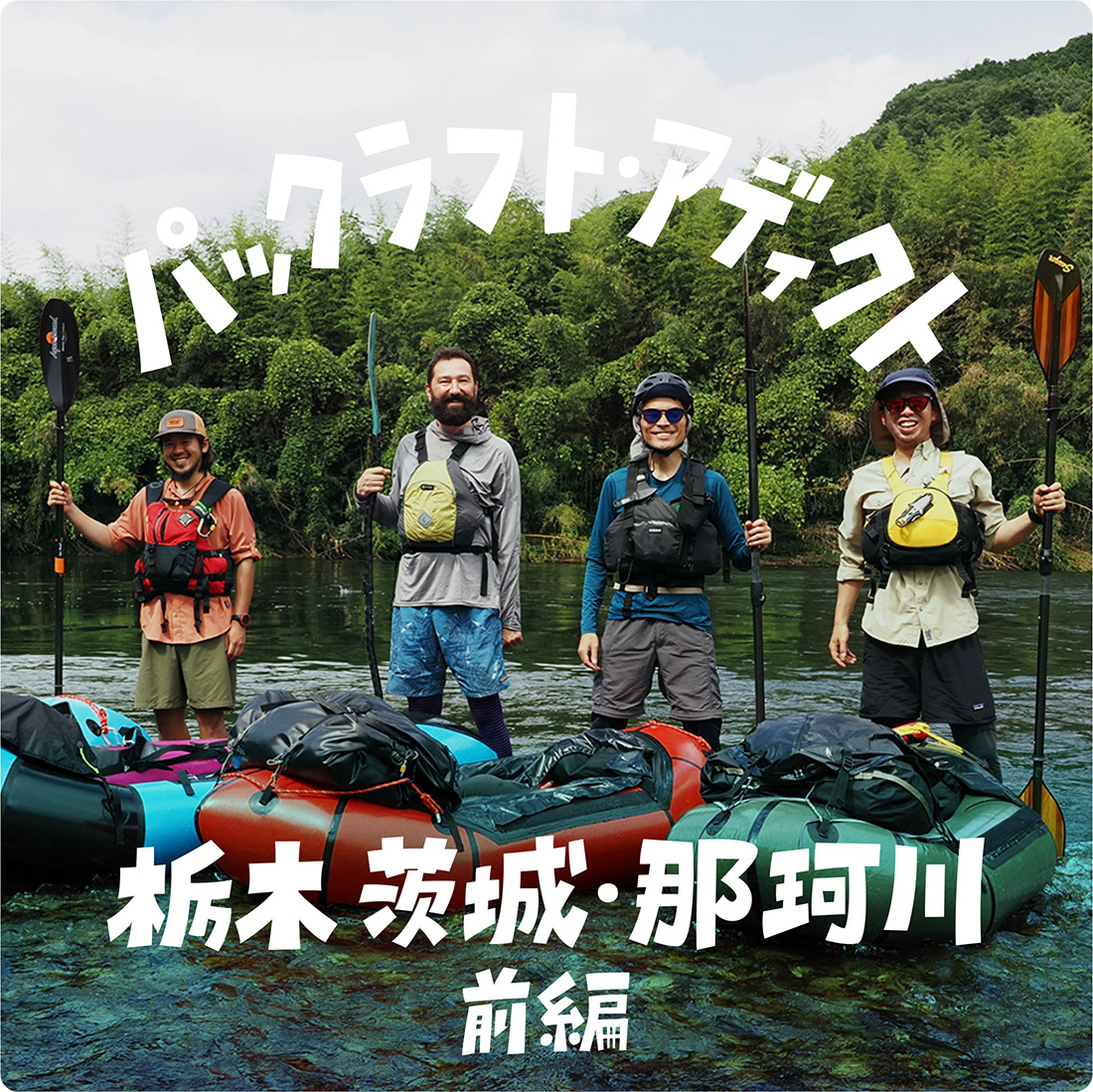
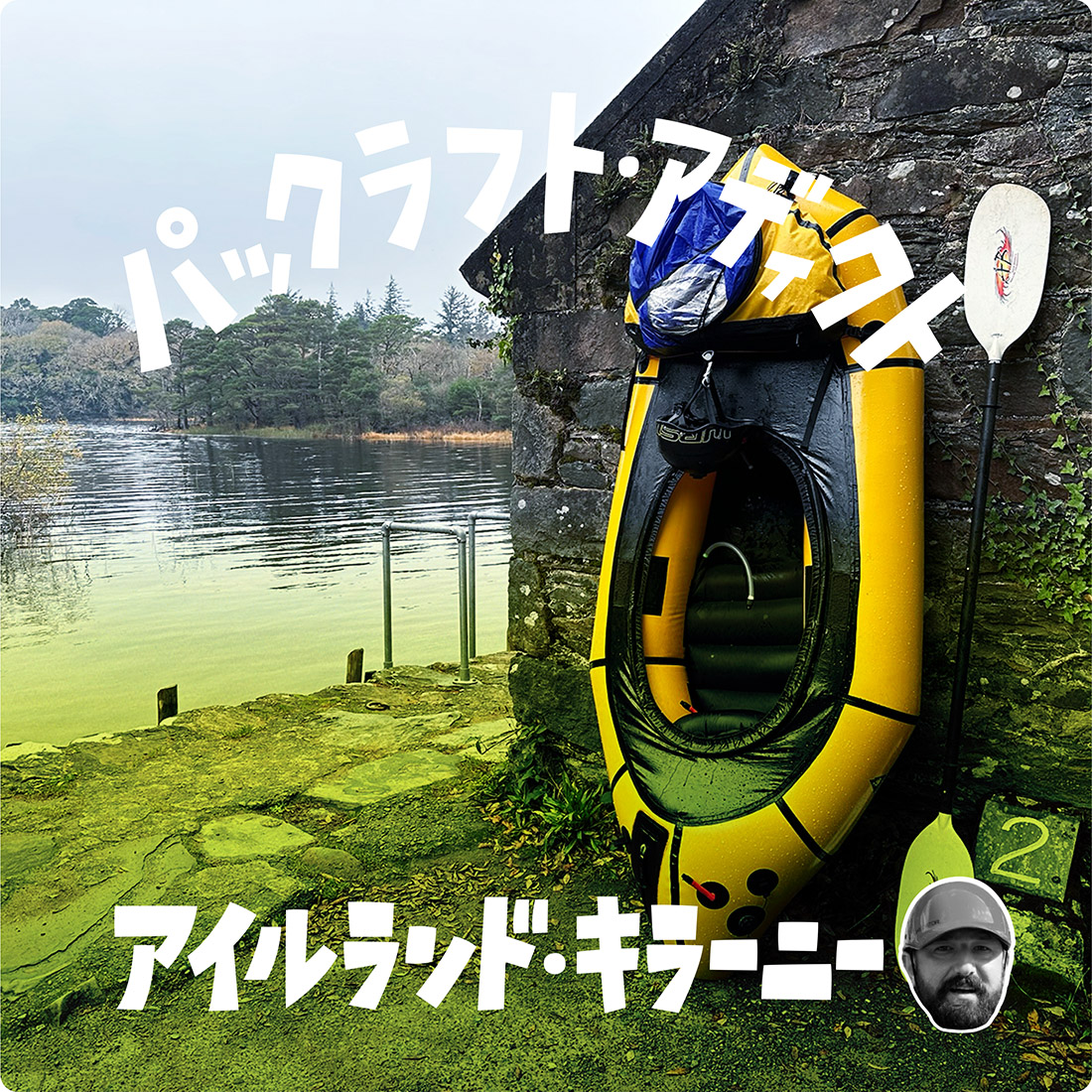
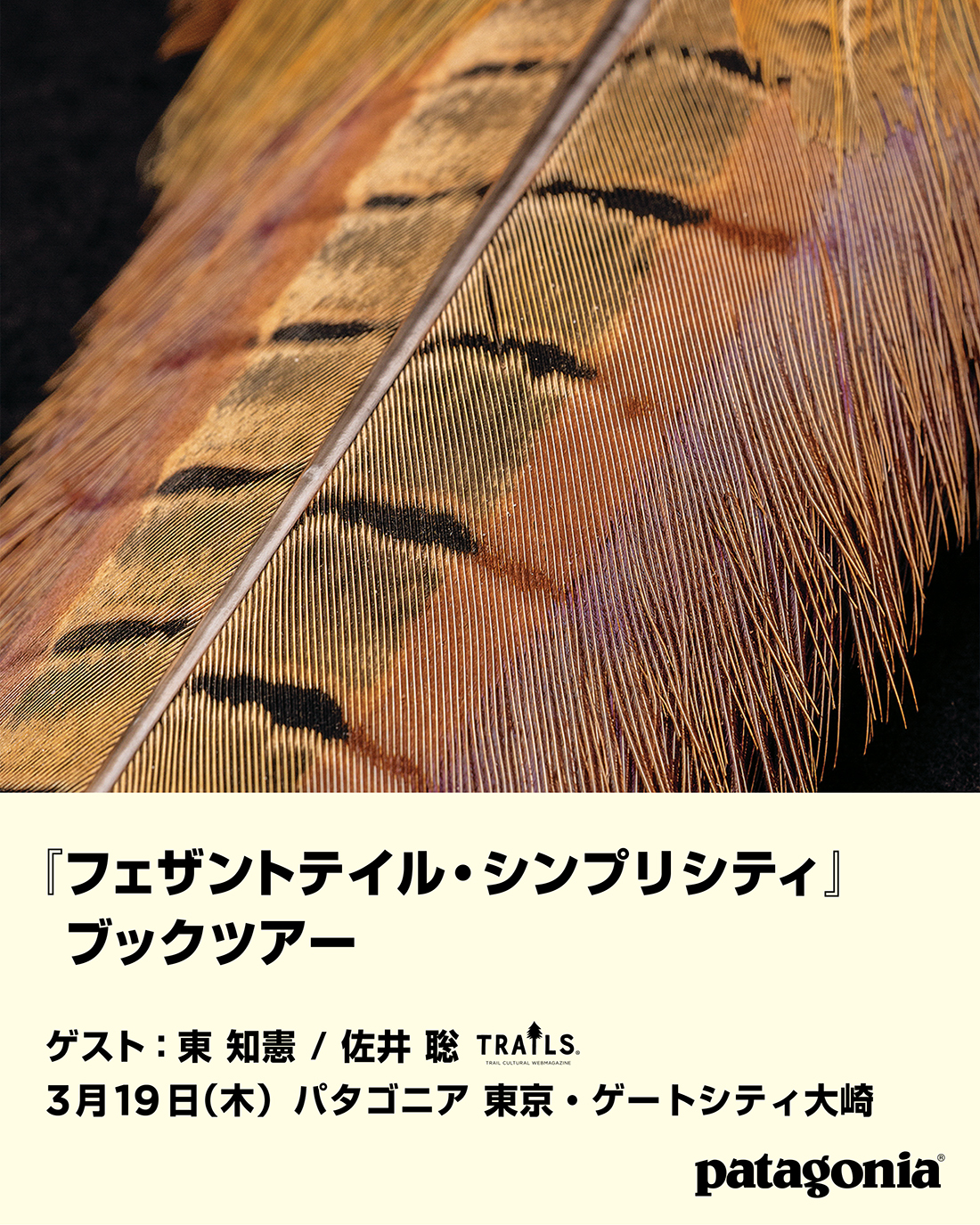
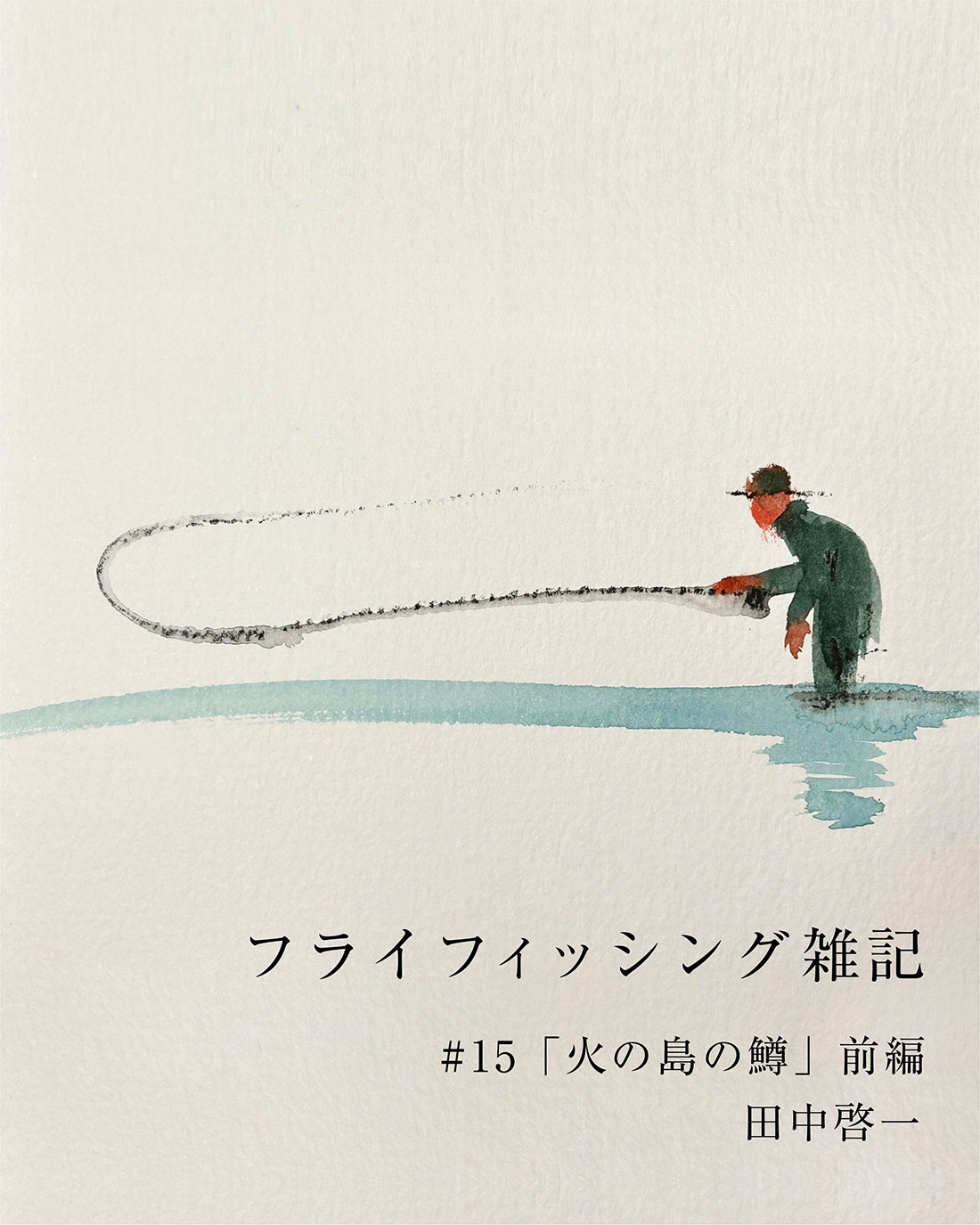
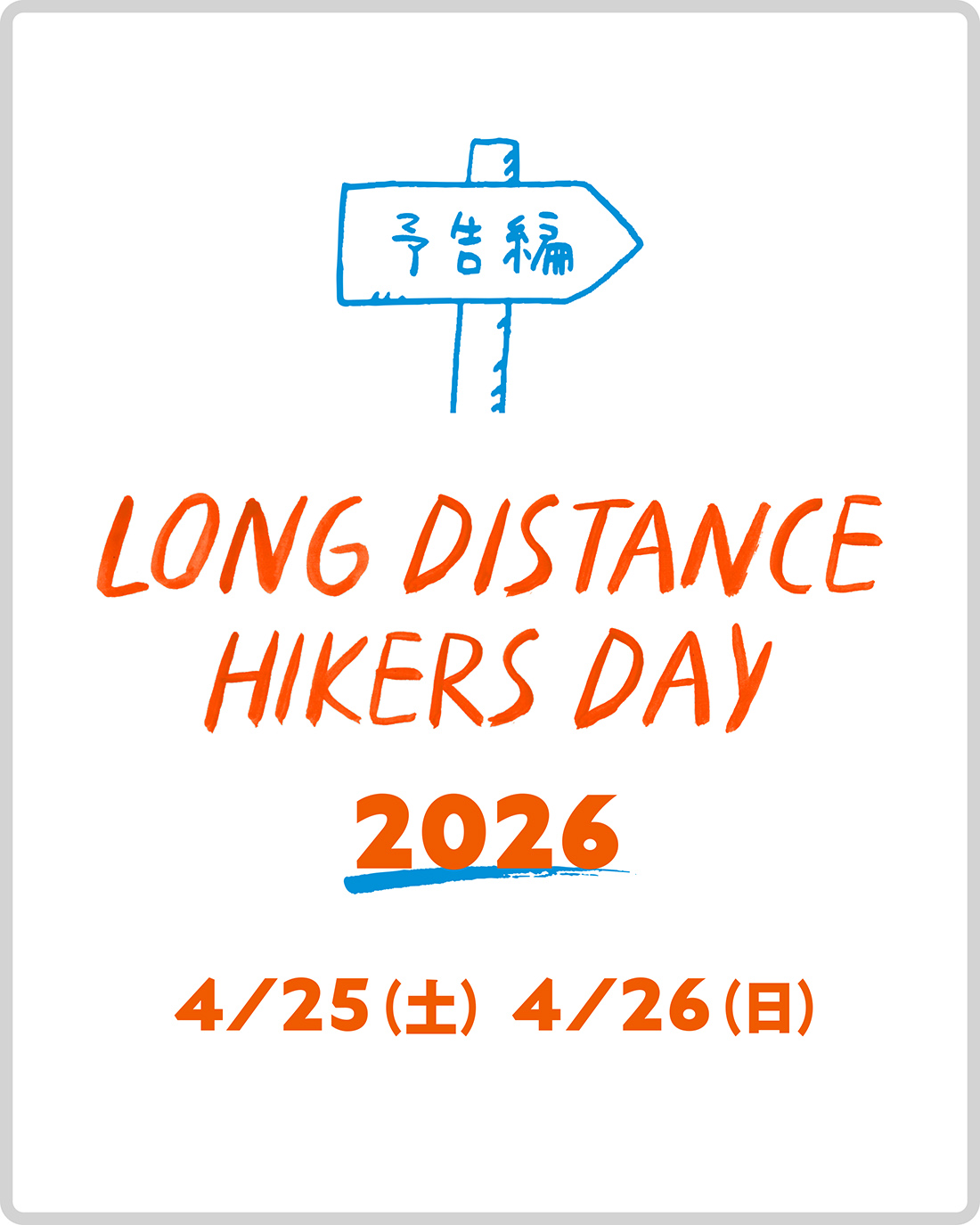
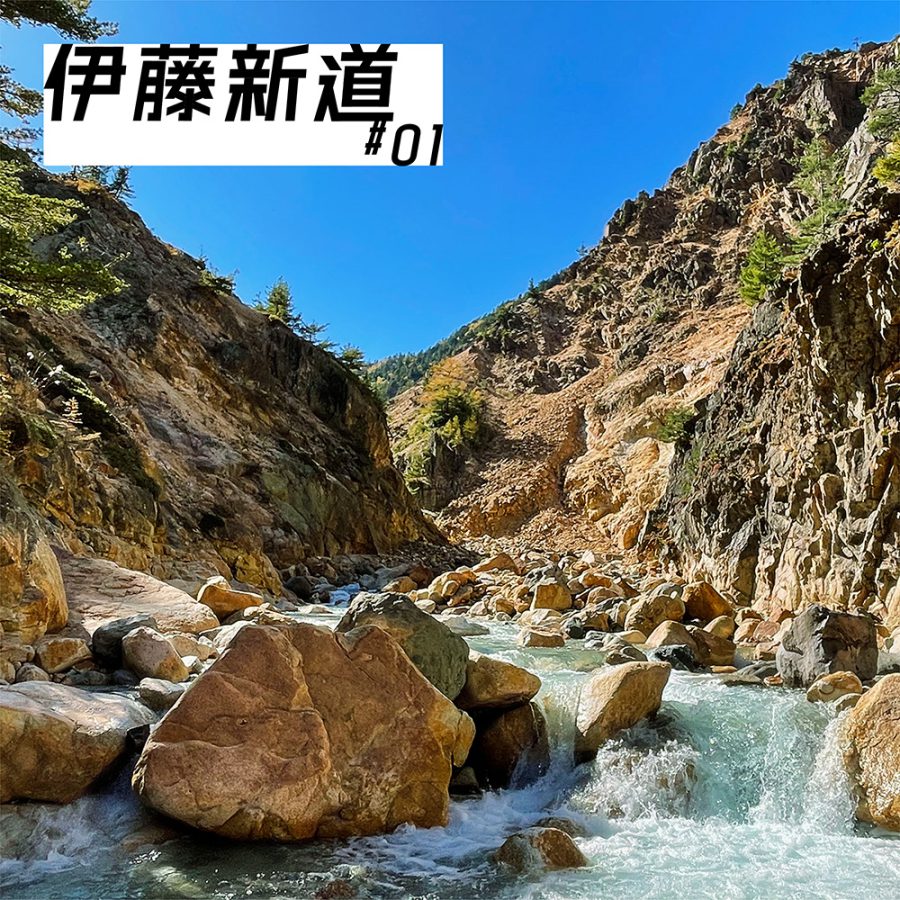
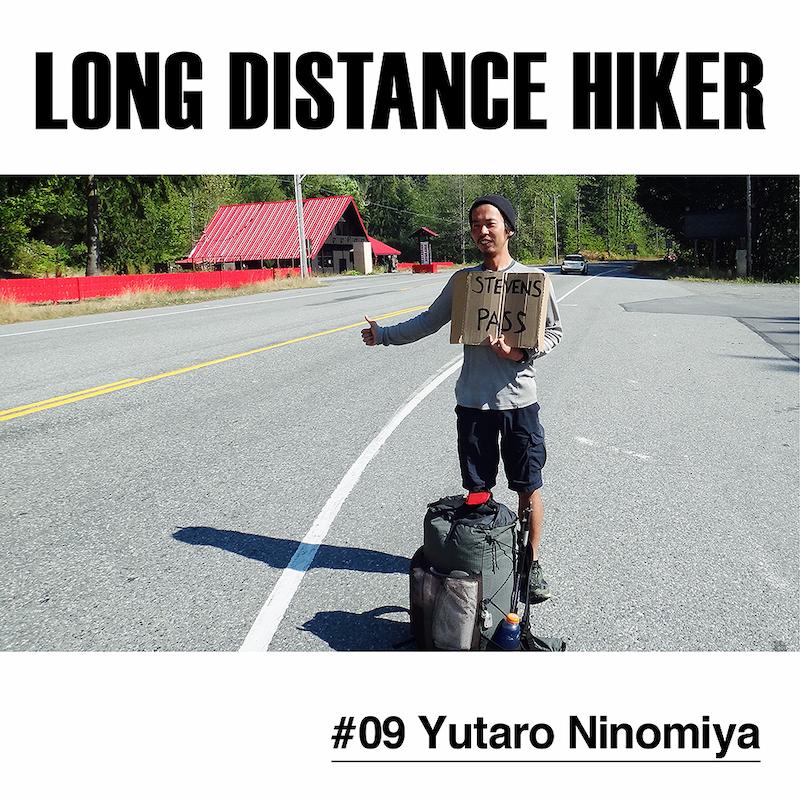
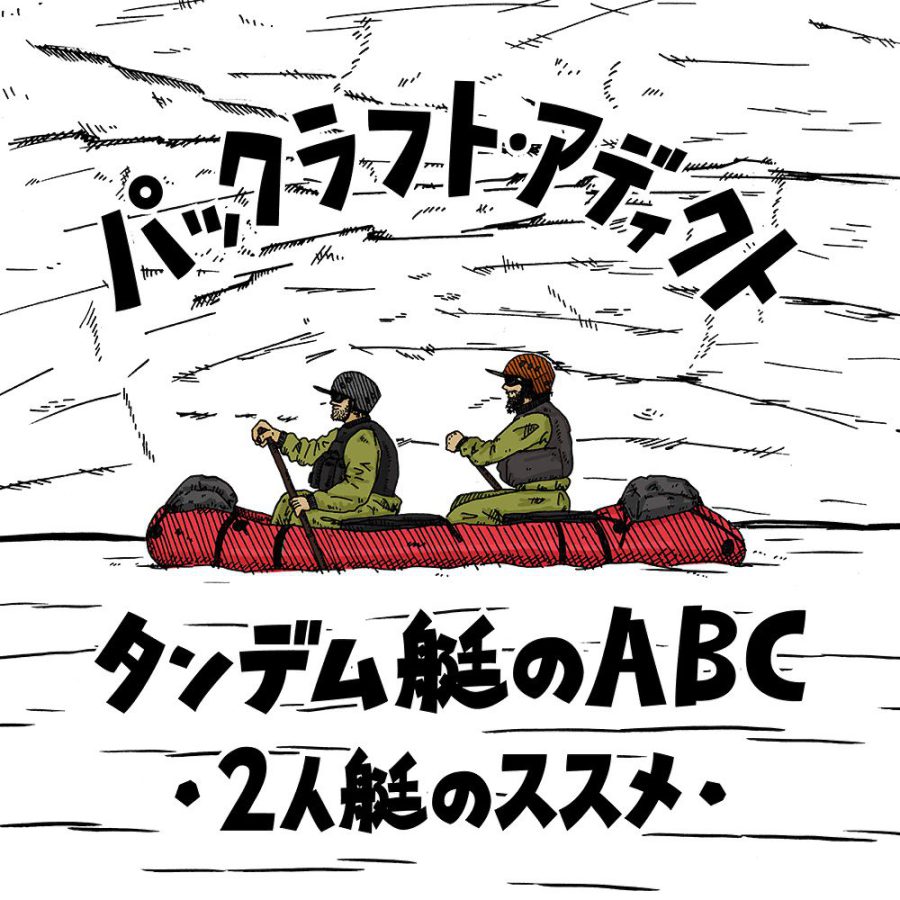
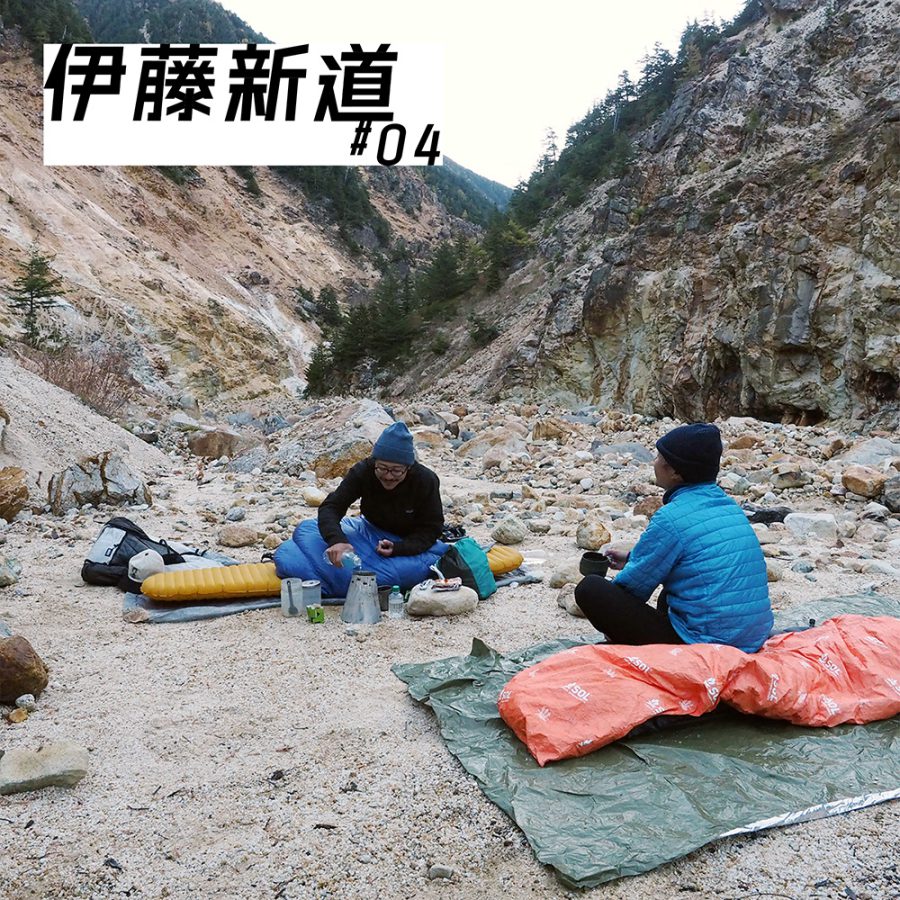
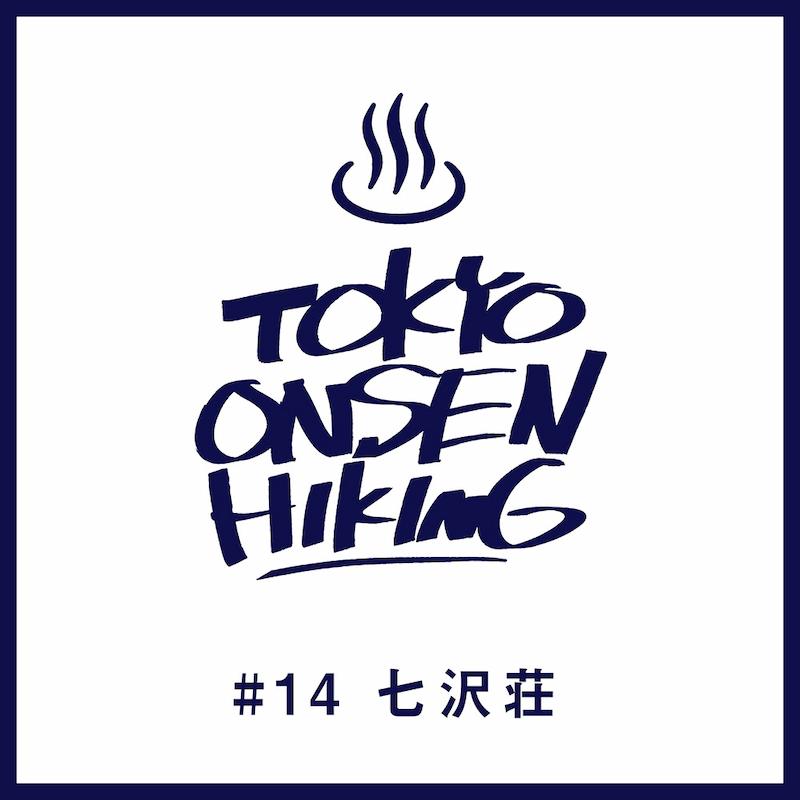

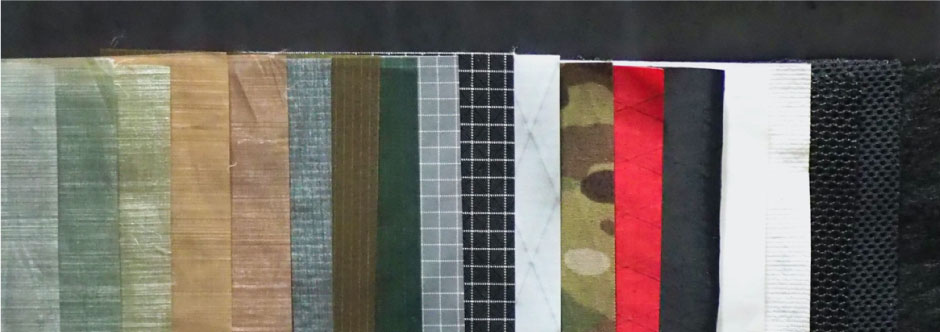
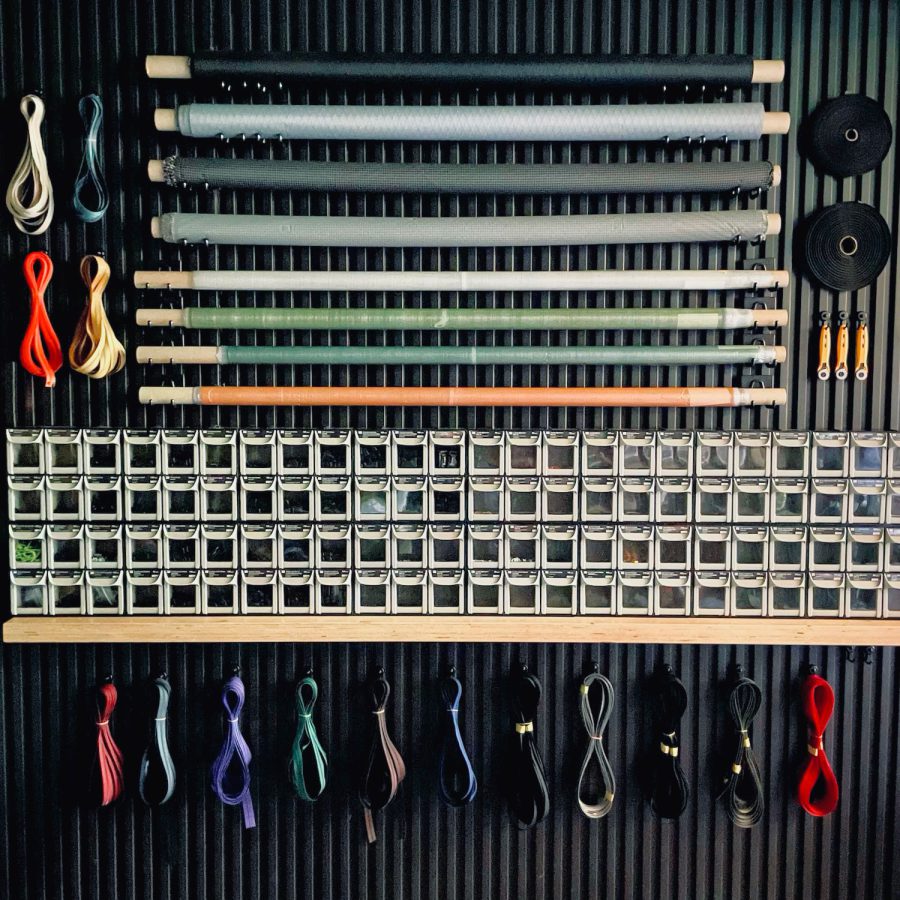 ULギアを自作するための生地、プラパーツ、ジッパー…
ULギアを自作するための生地、プラパーツ、ジッパー… 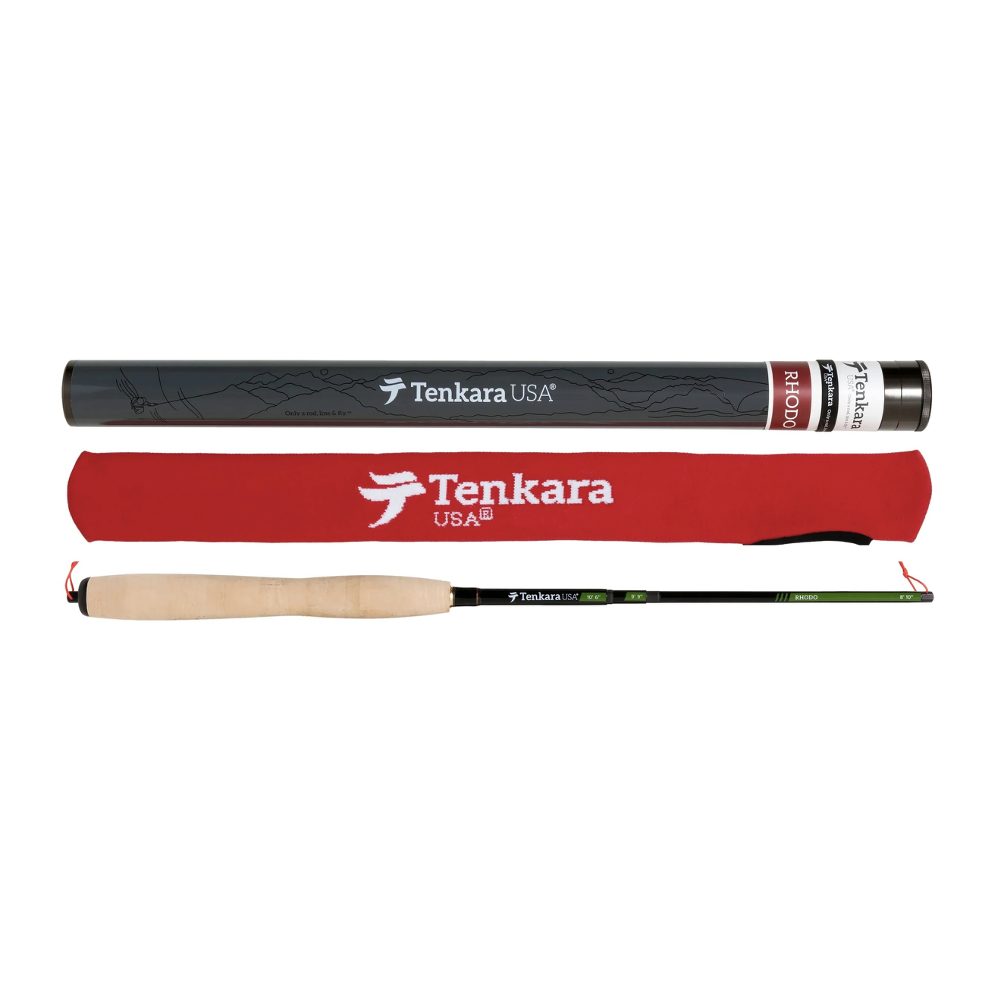 Tenkara USA | RHODO (ロード)
Tenkara USA | RHODO (ロード) 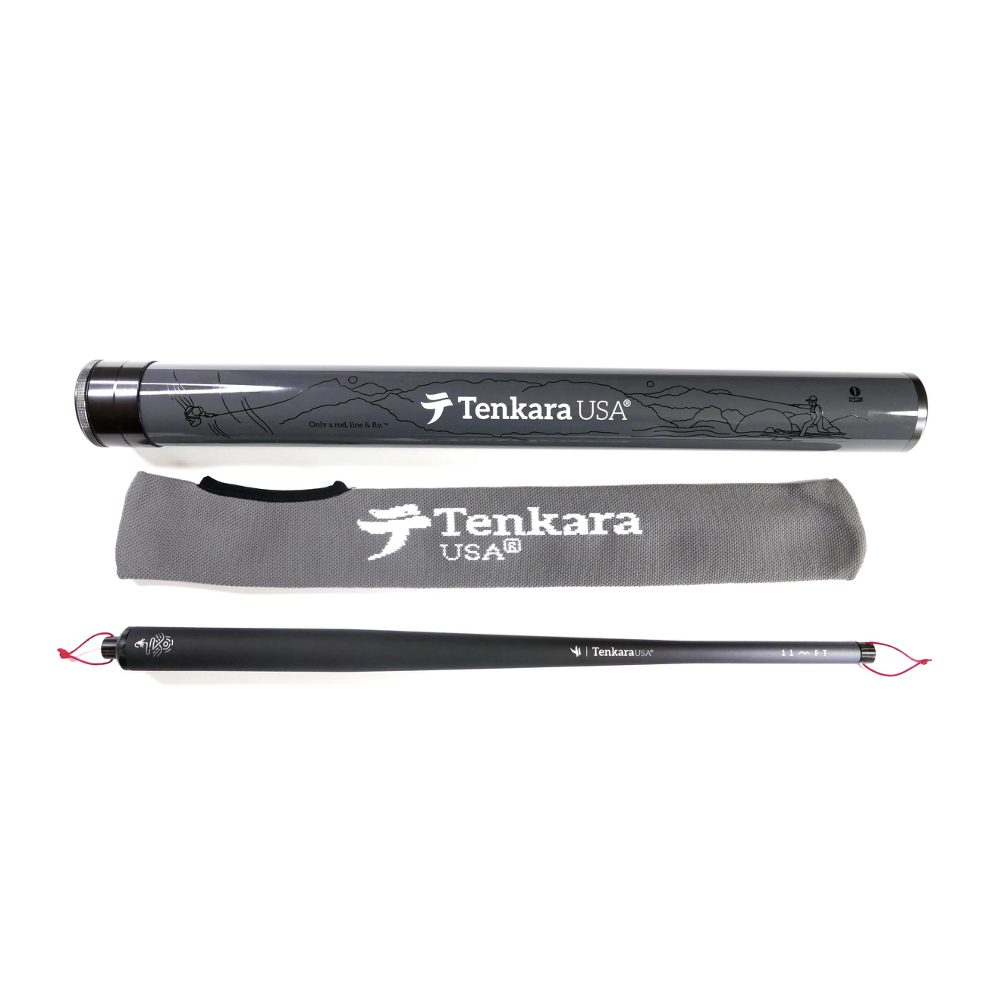 Tenkara USA | YAMA (ヤマ)
Tenkara USA | YAMA (ヤマ) 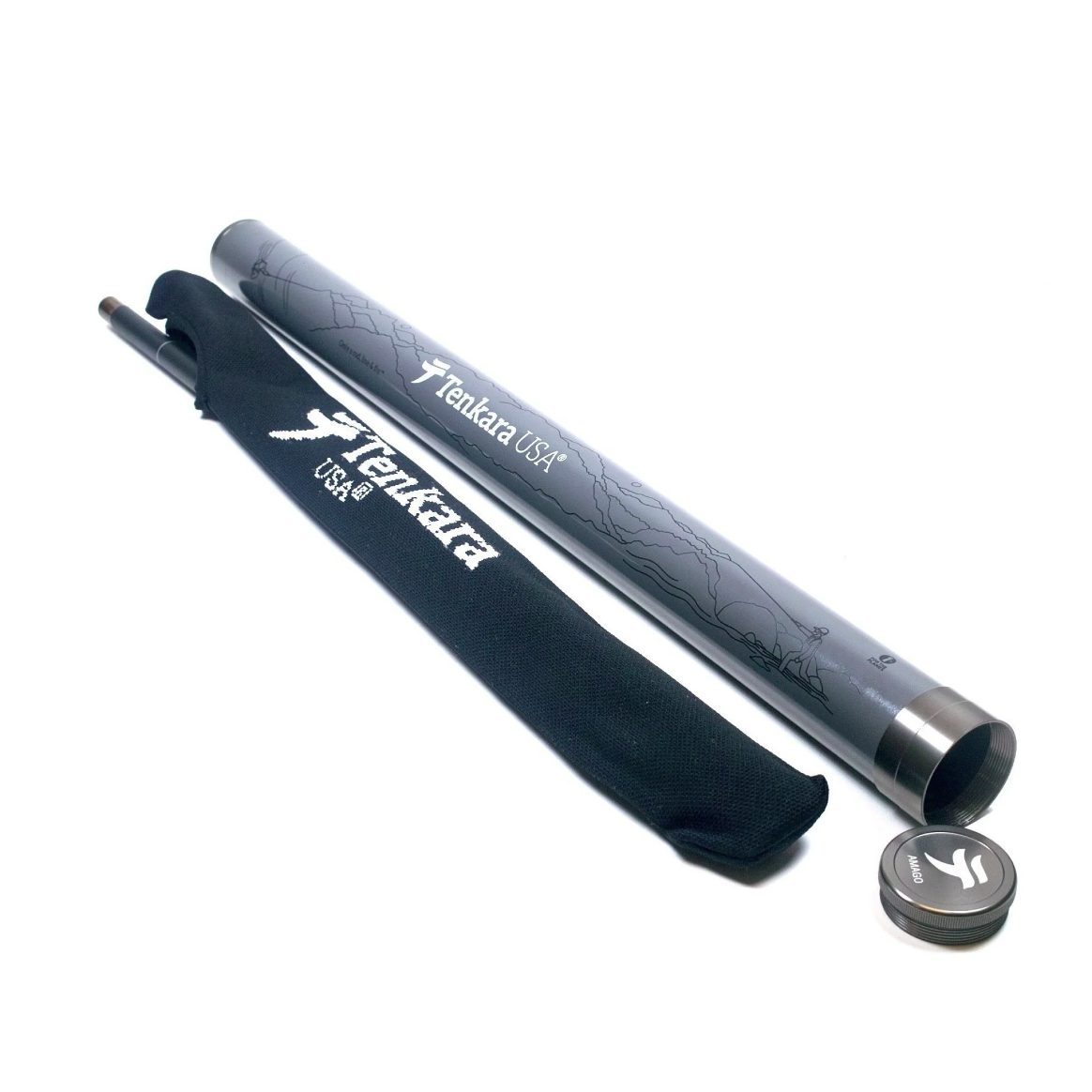 Tenkara USA | Rod Cases (…
Tenkara USA | Rod Cases (… 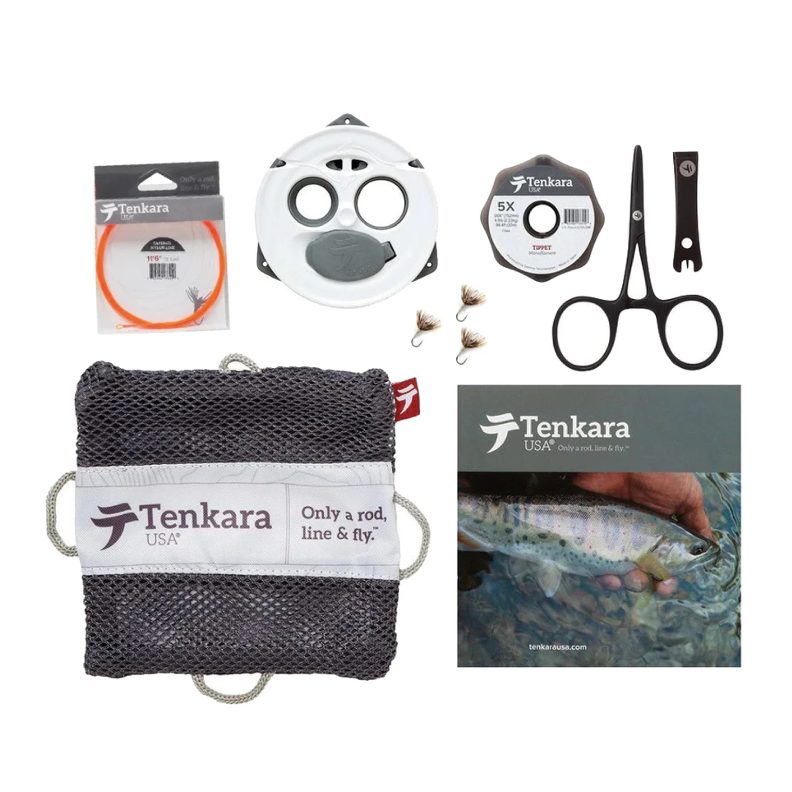 Tenkara USA | tenkara kit…
Tenkara USA | tenkara kit… 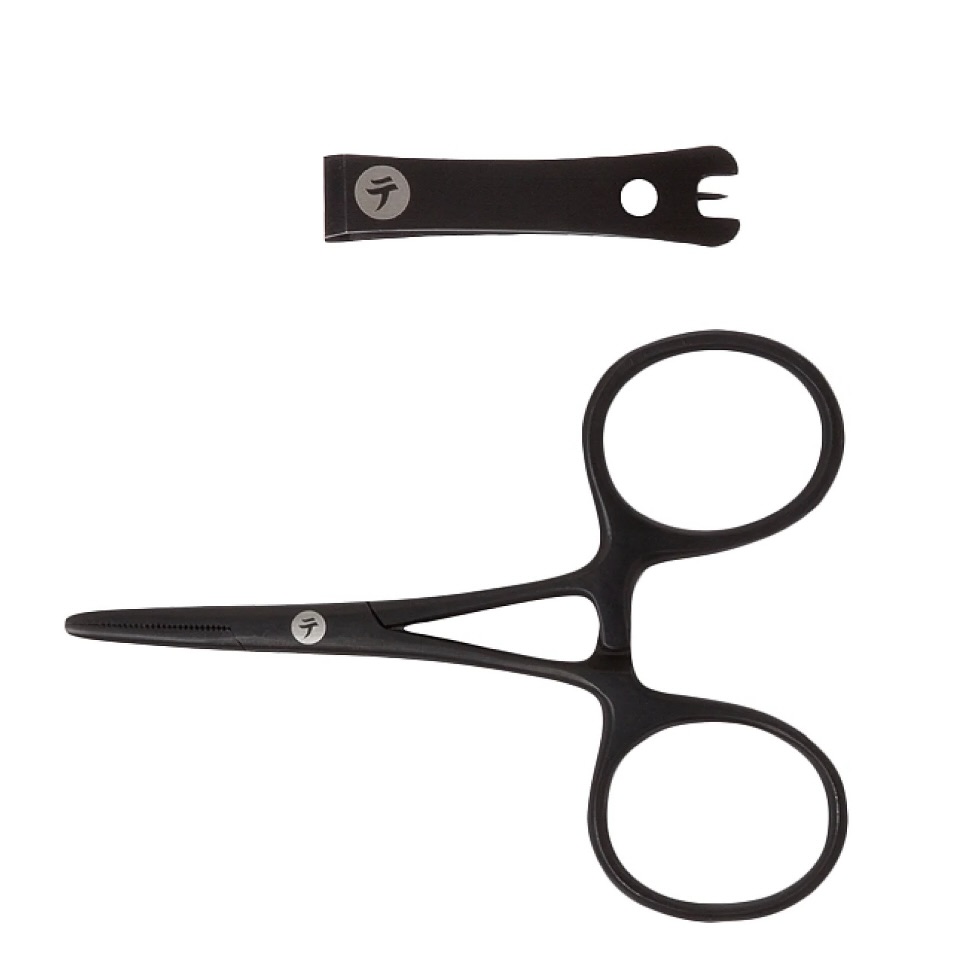 Tenkara USA | Forceps & …
Tenkara USA | Forceps & … 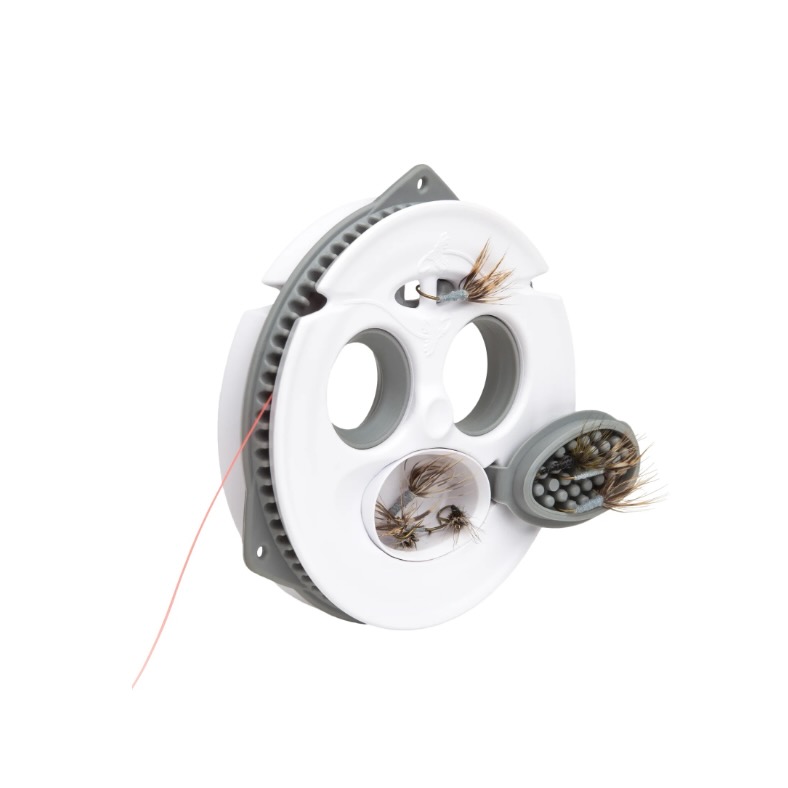 Tenkara USA | The Keeper …
Tenkara USA | The Keeper … 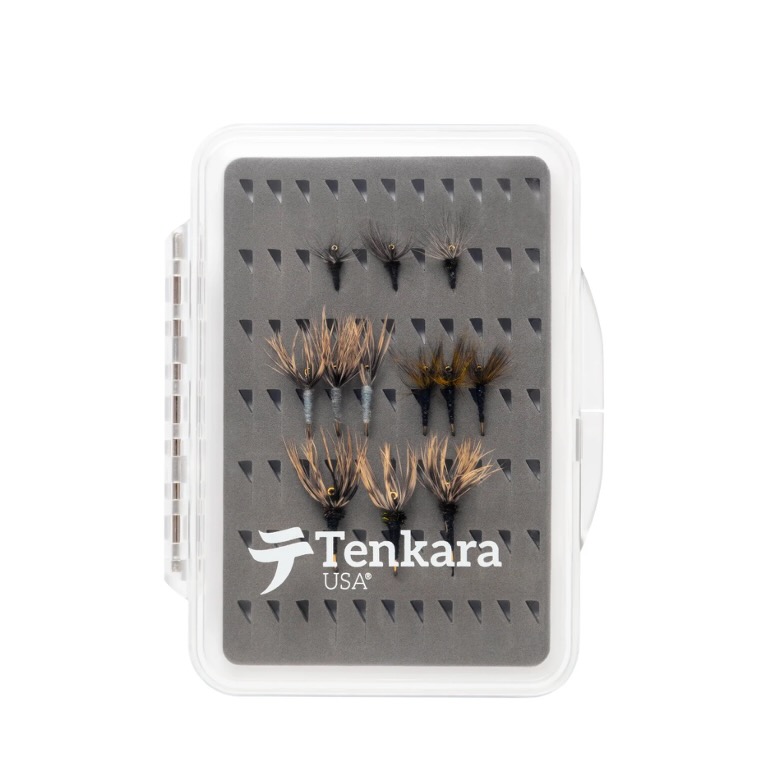 Tenkara USA | 12 Tenkara …
Tenkara USA | 12 Tenkara … 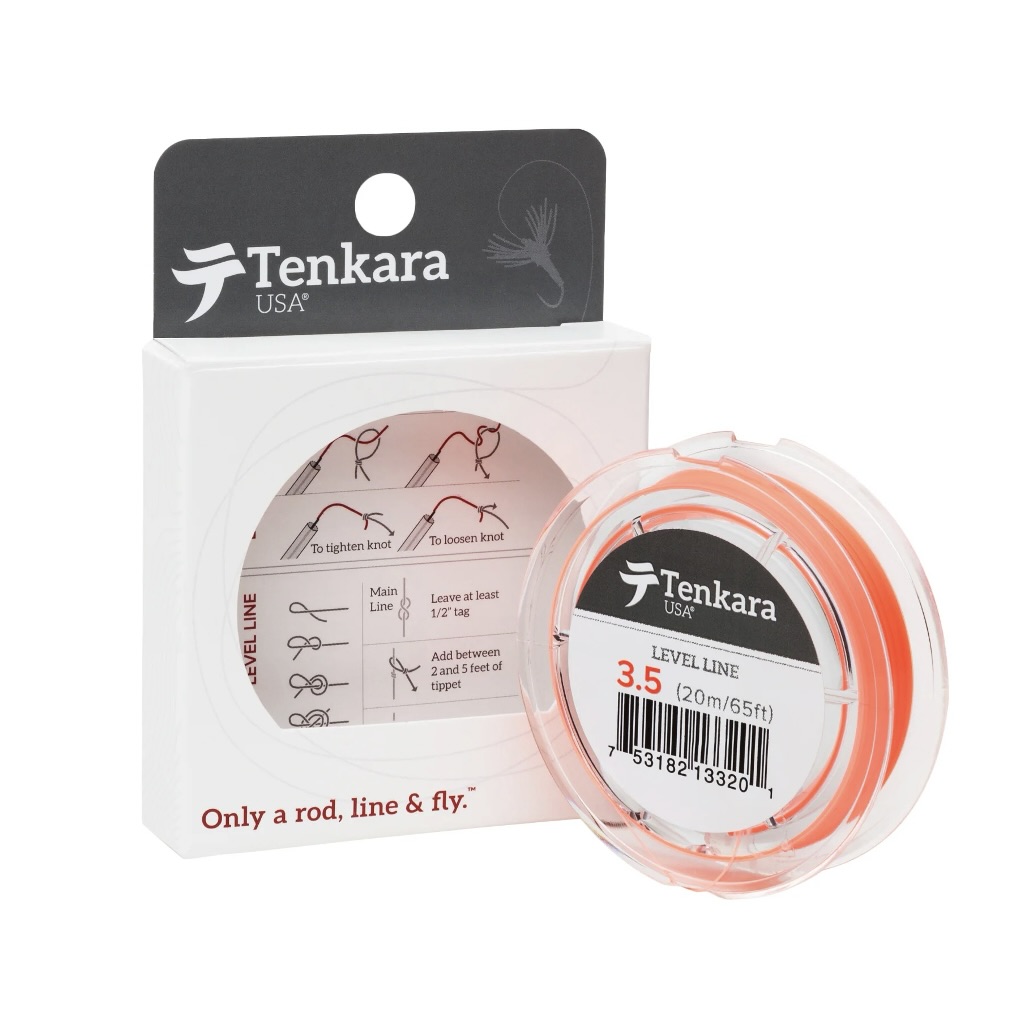 Tenkara USA | Tenkara Lev…
Tenkara USA | Tenkara Lev… 